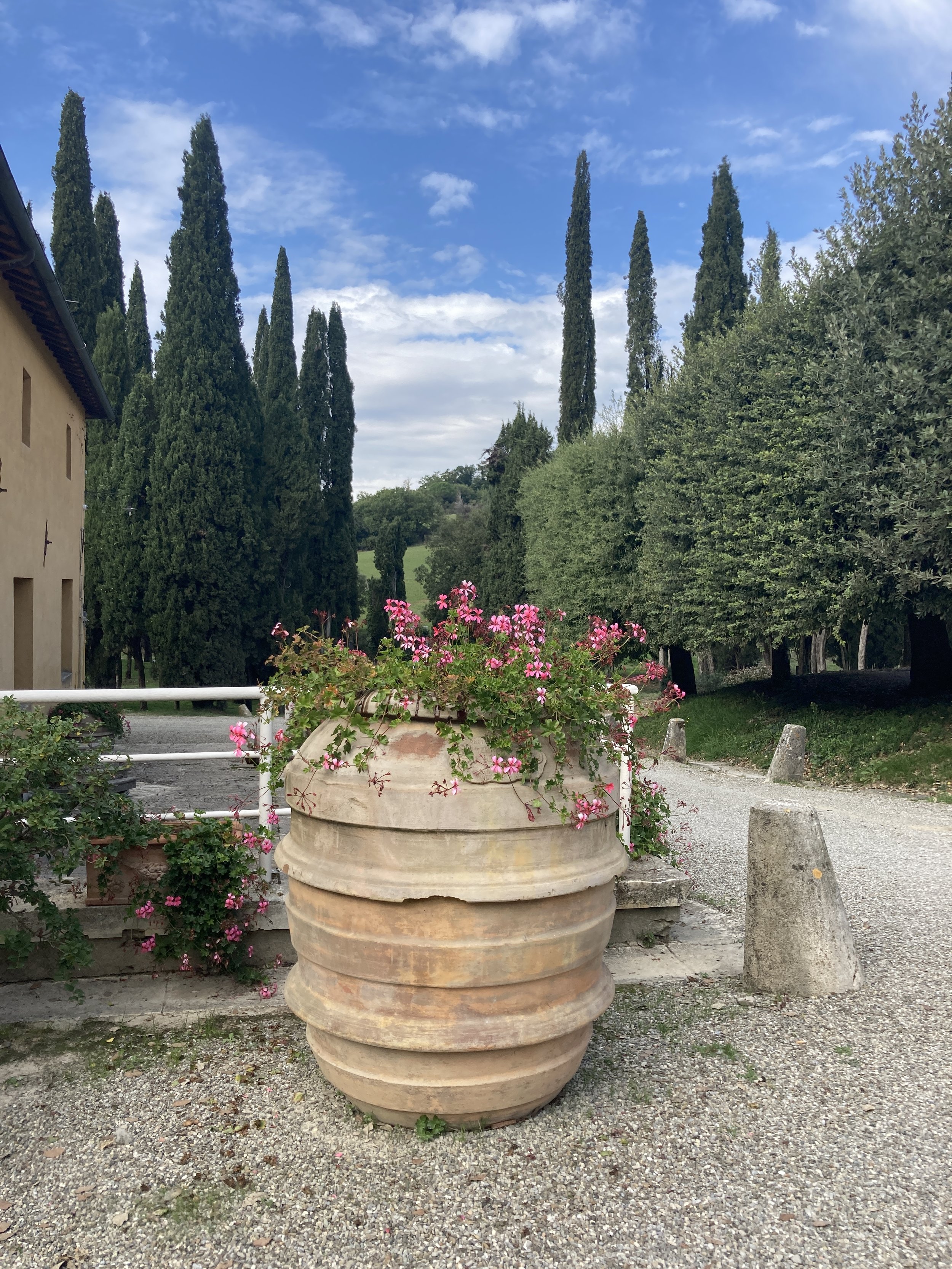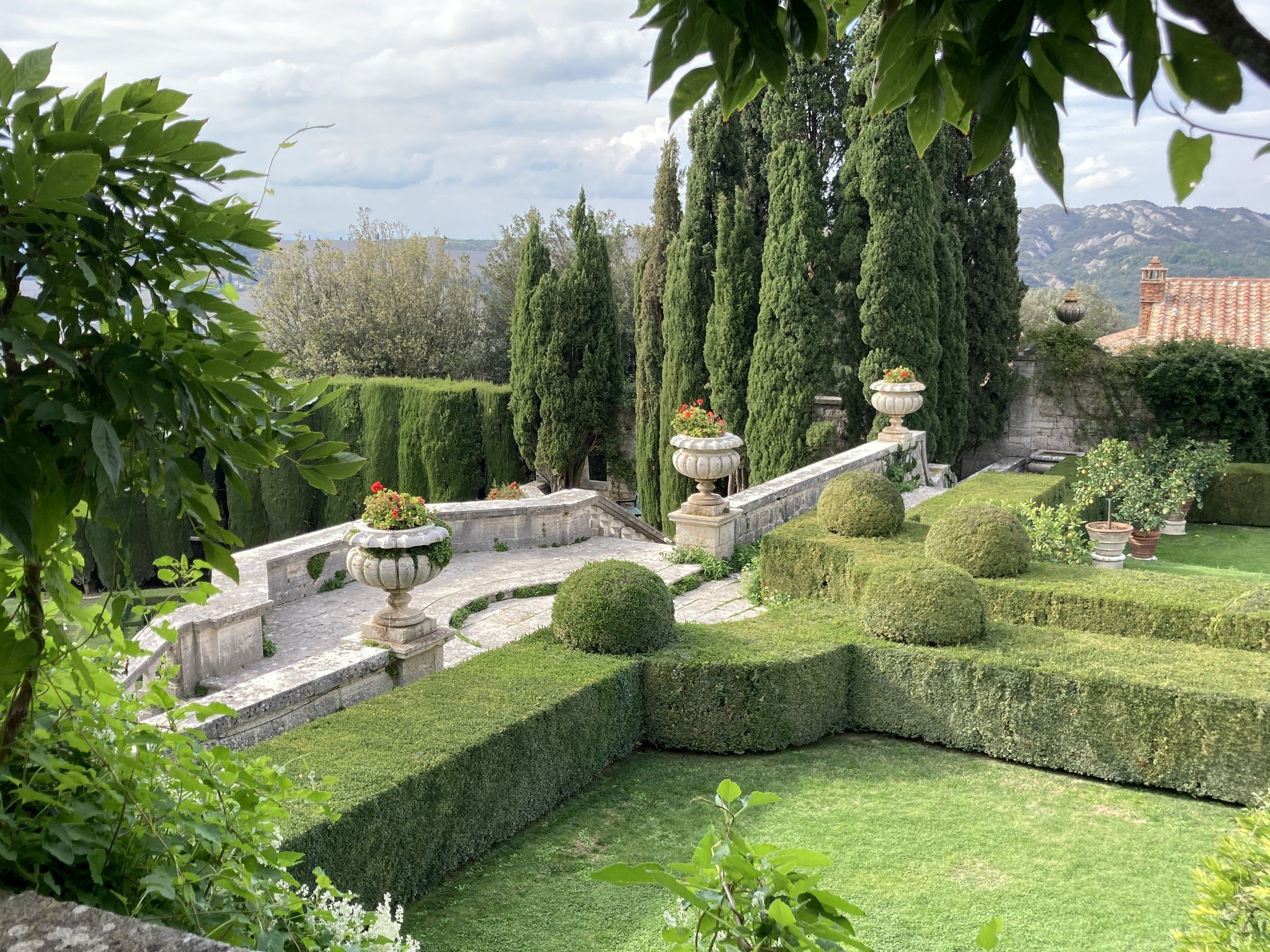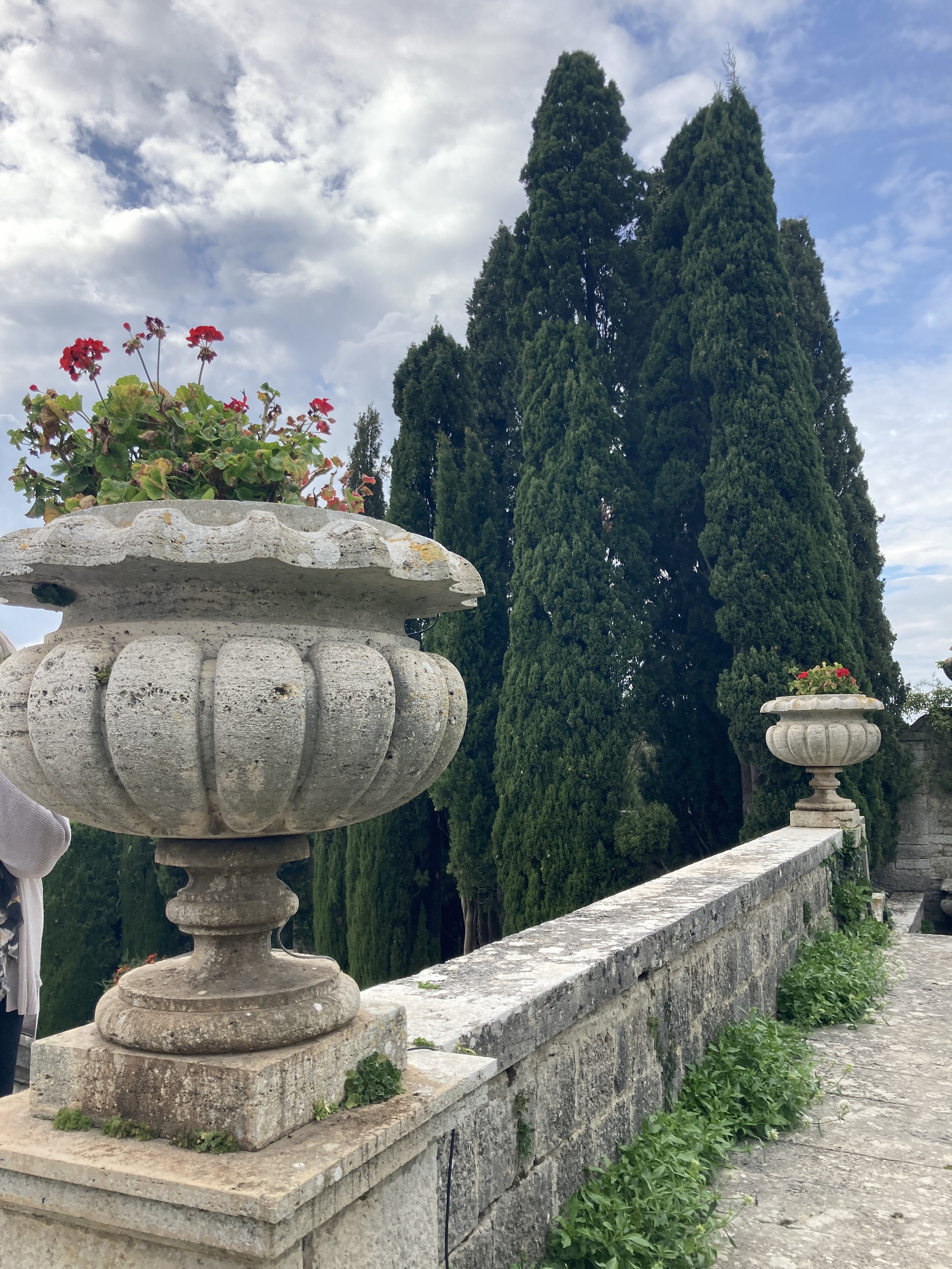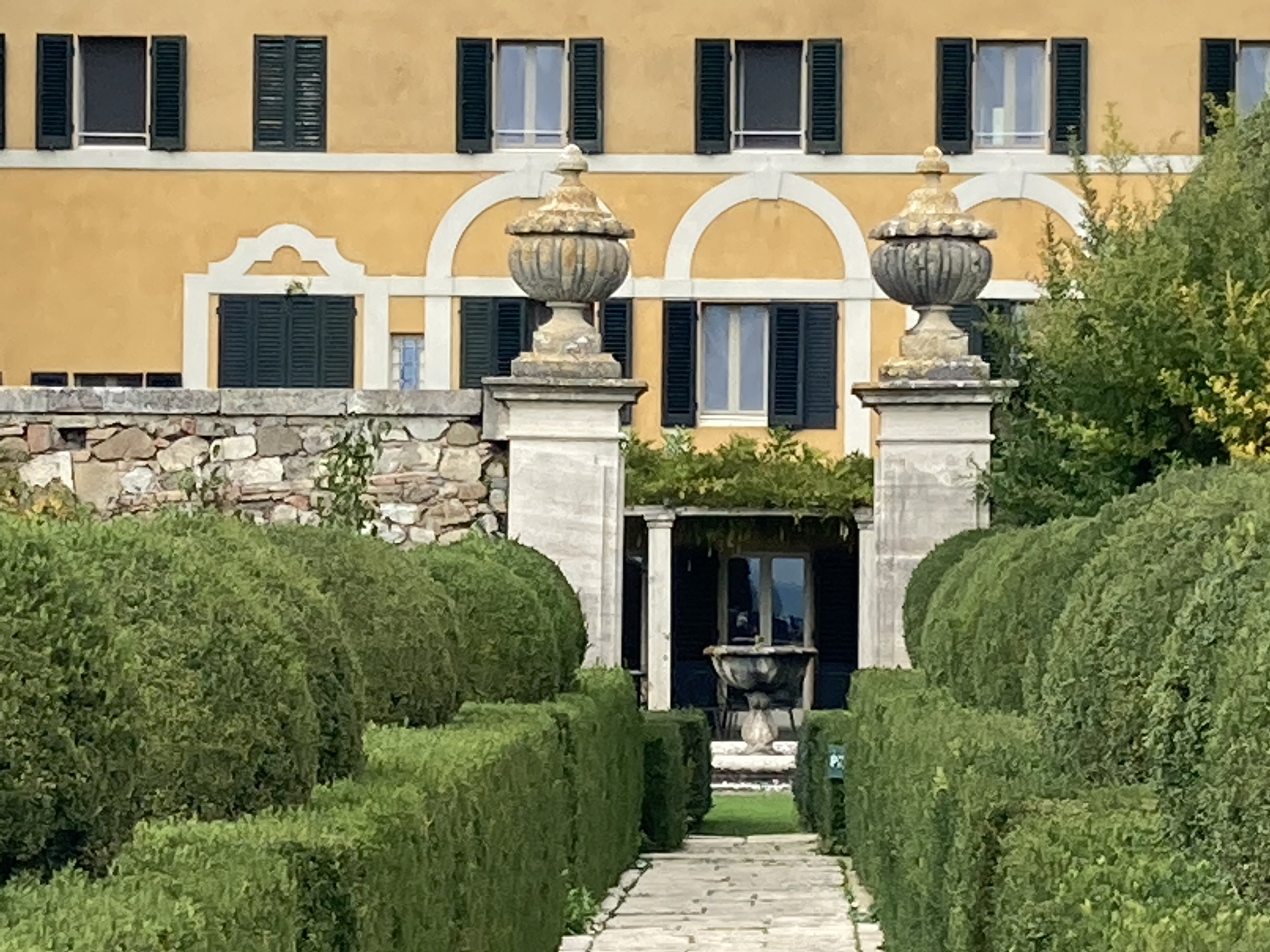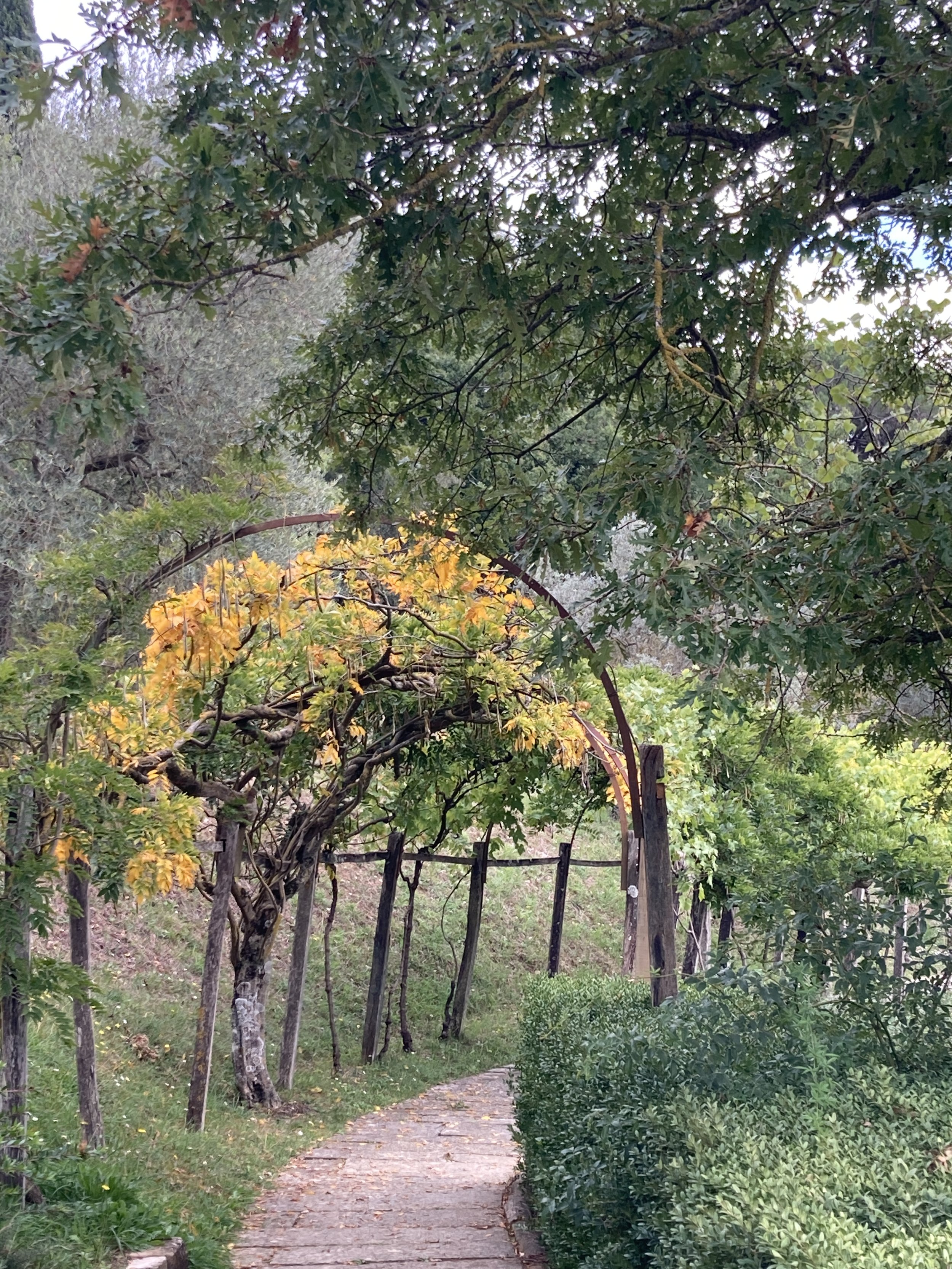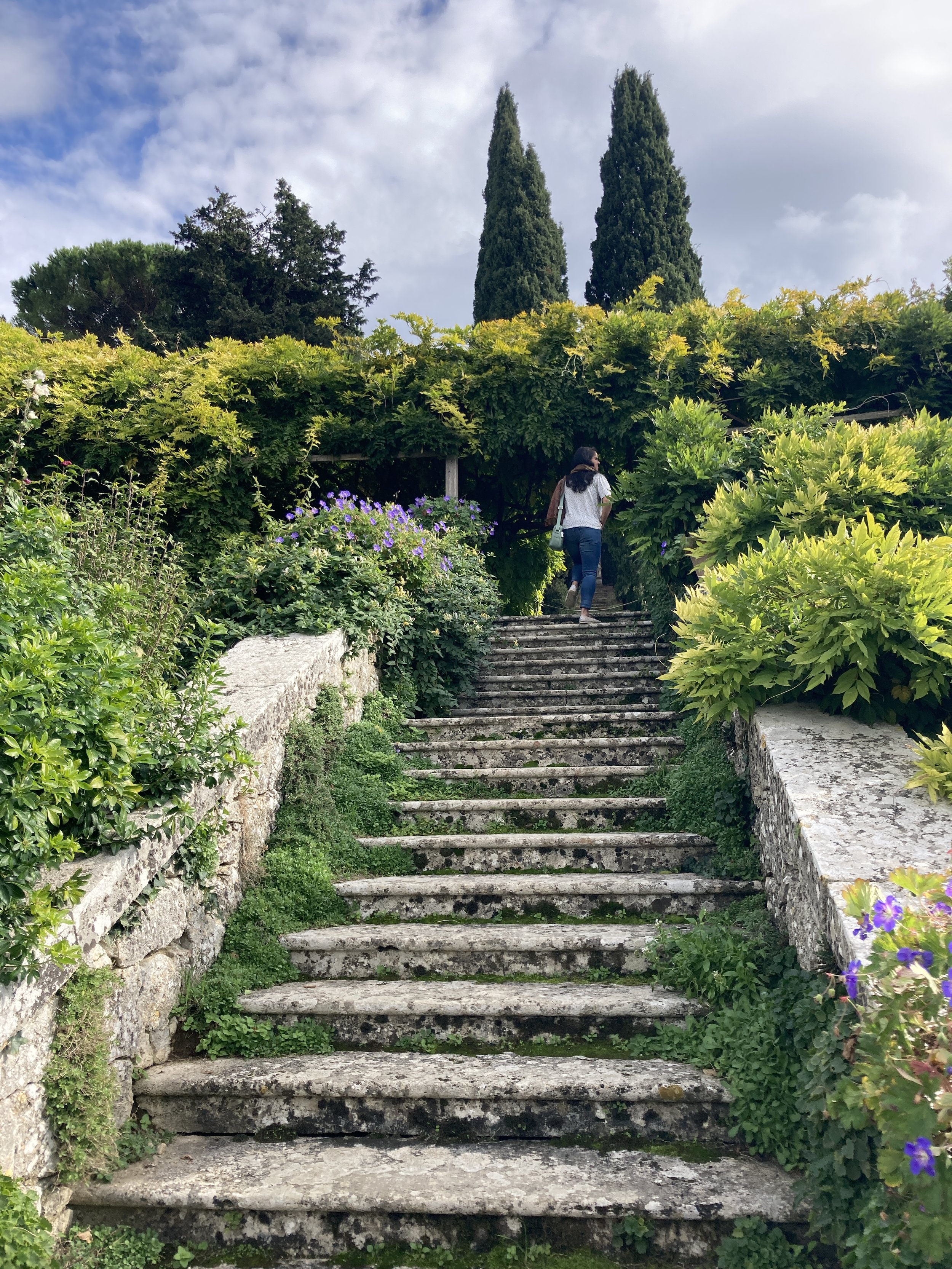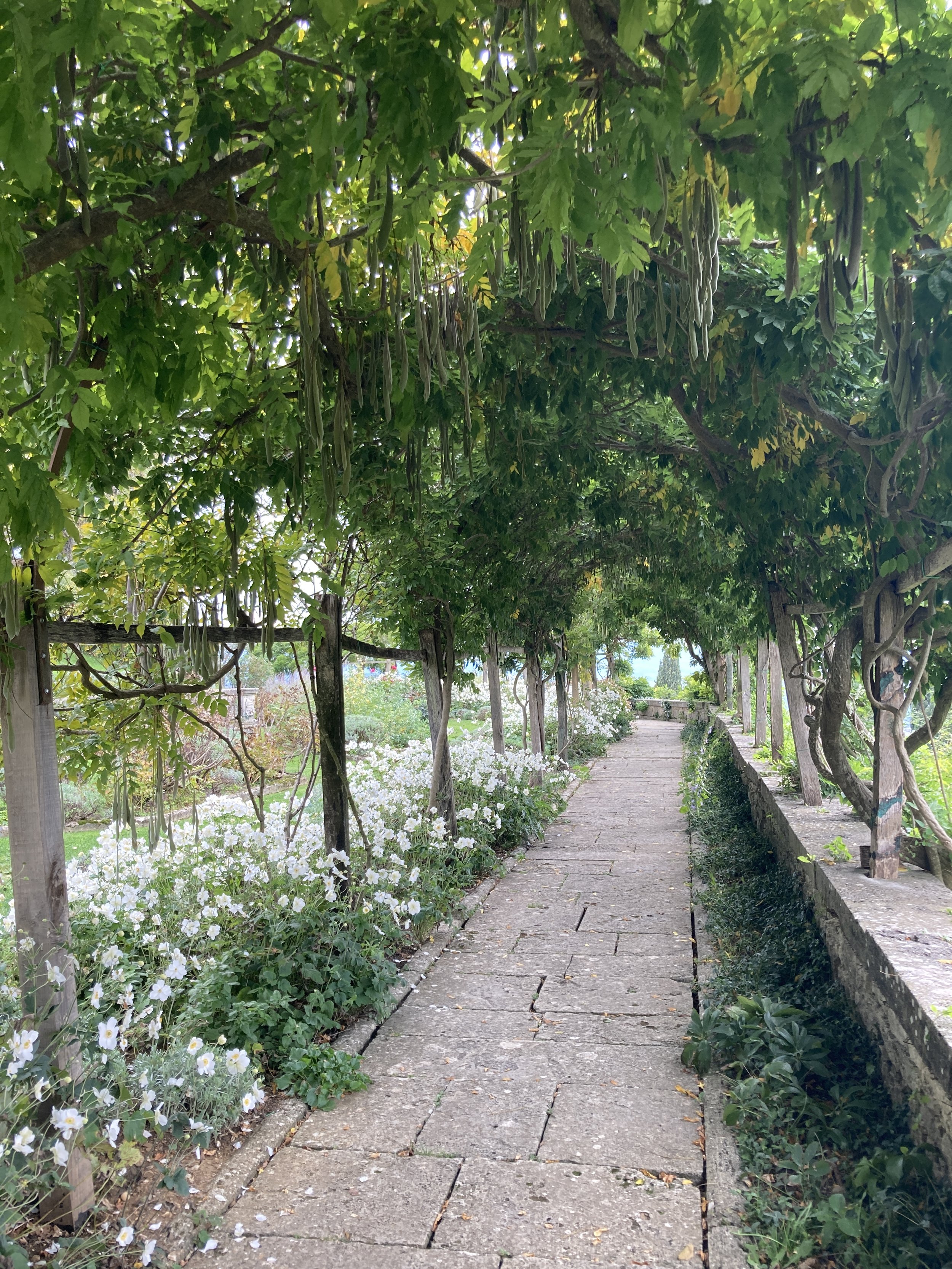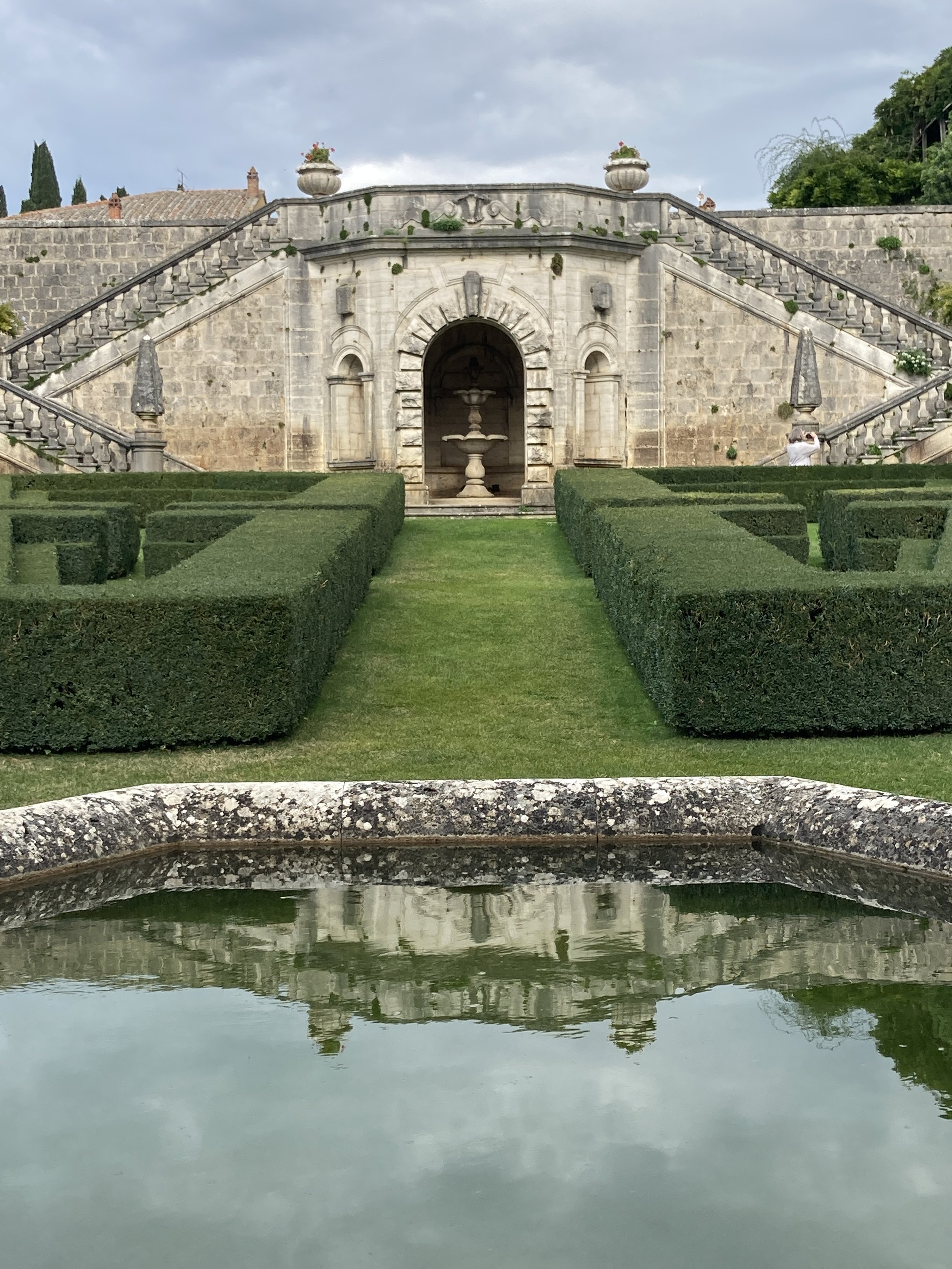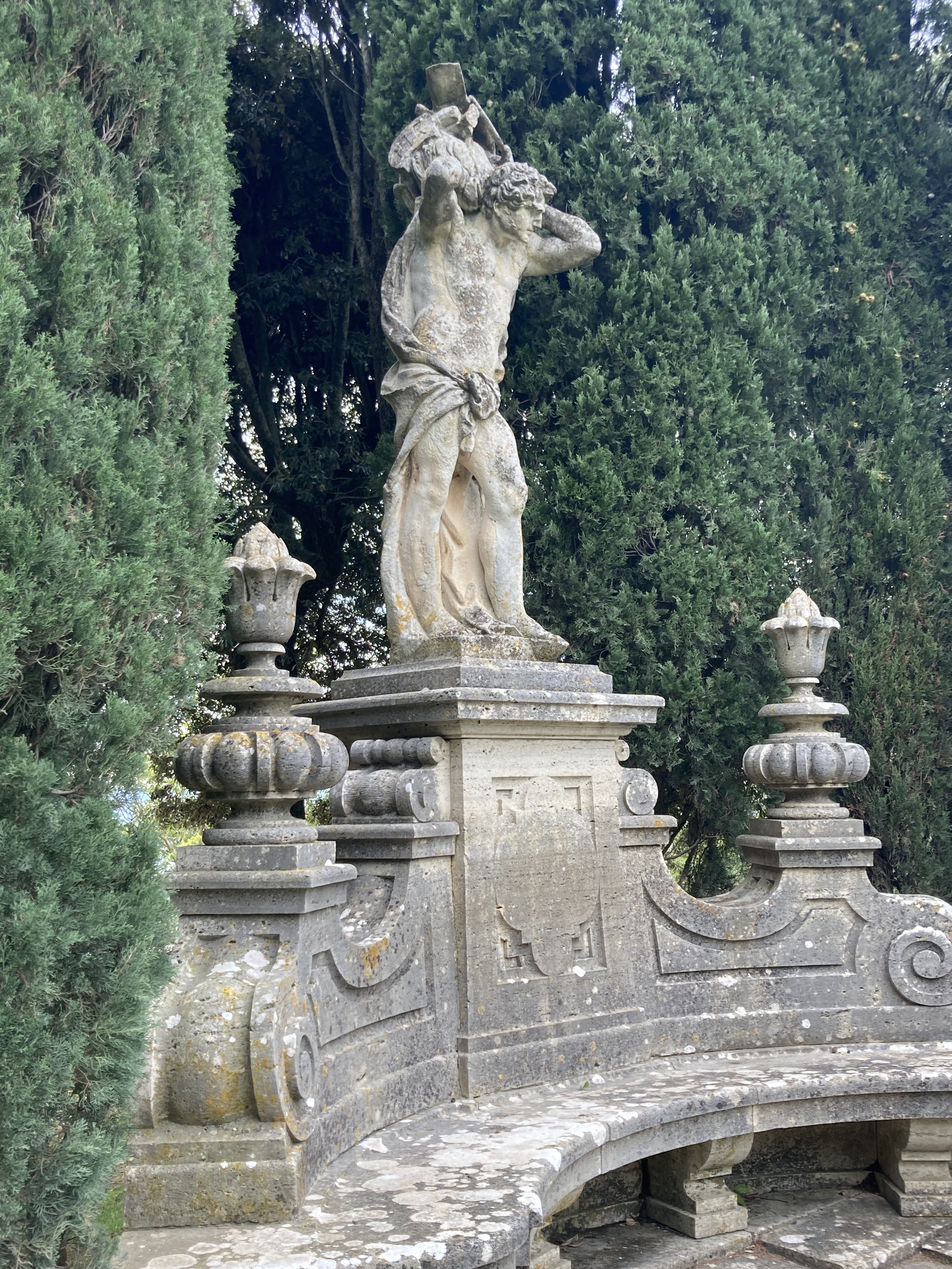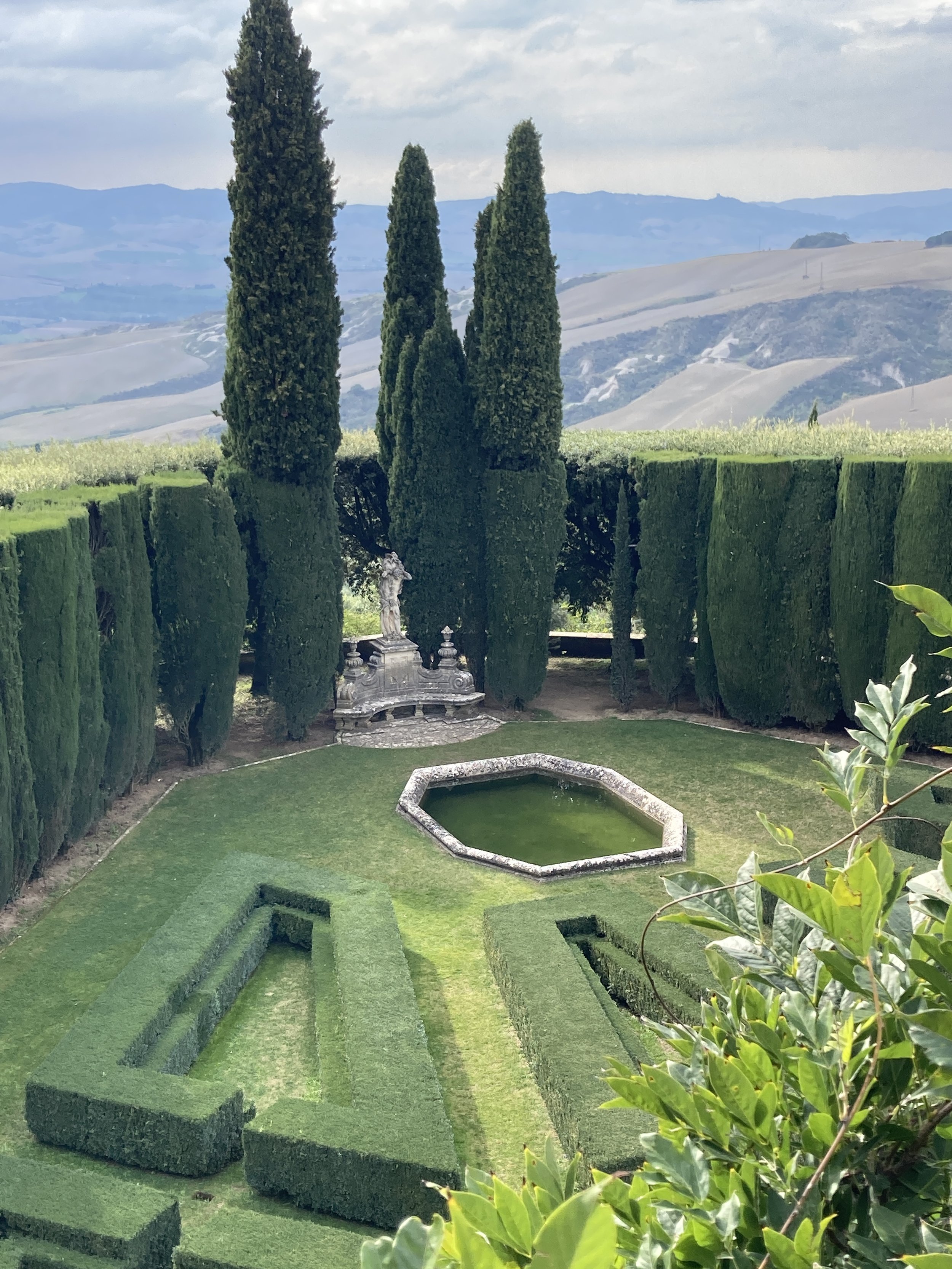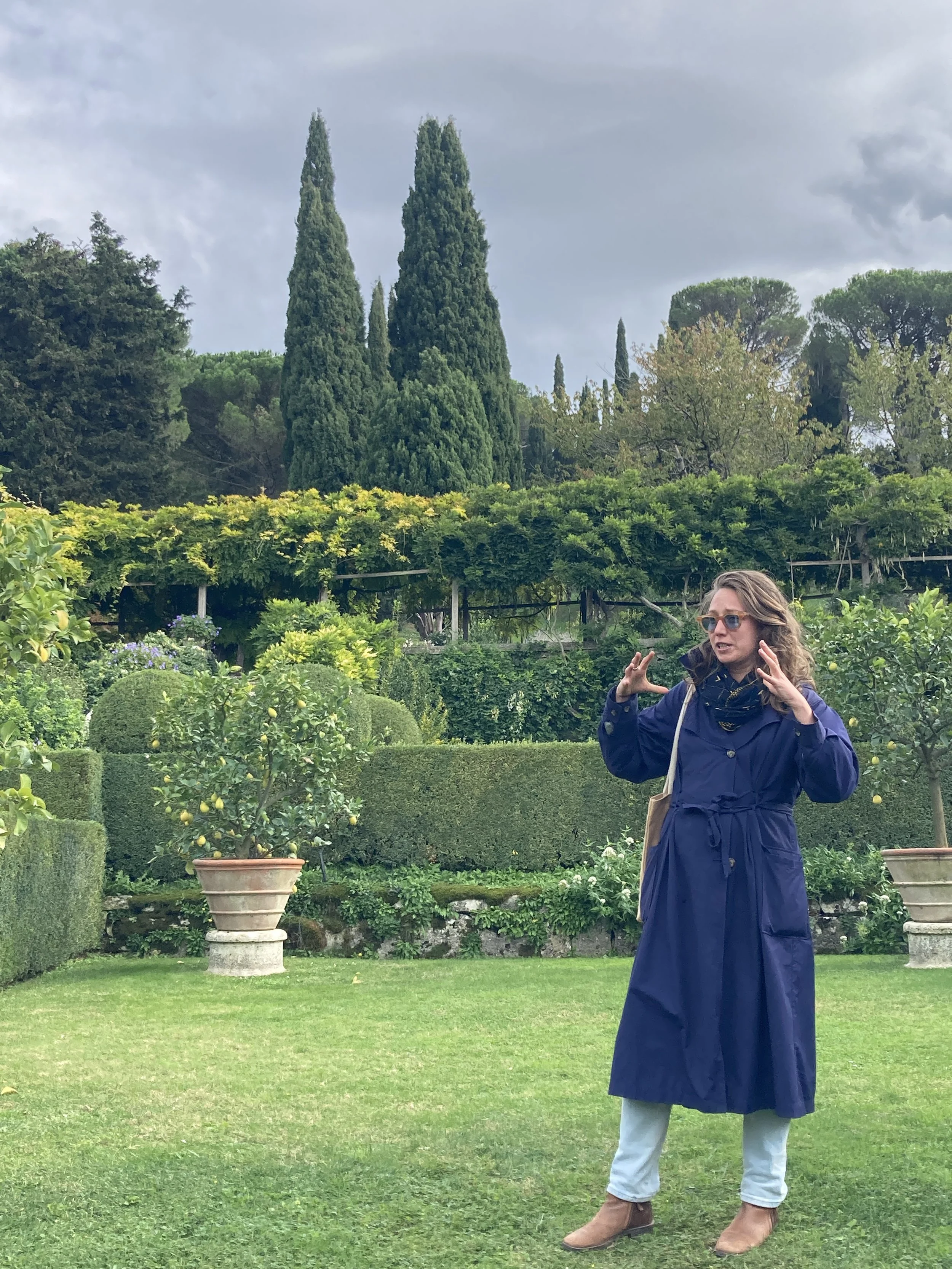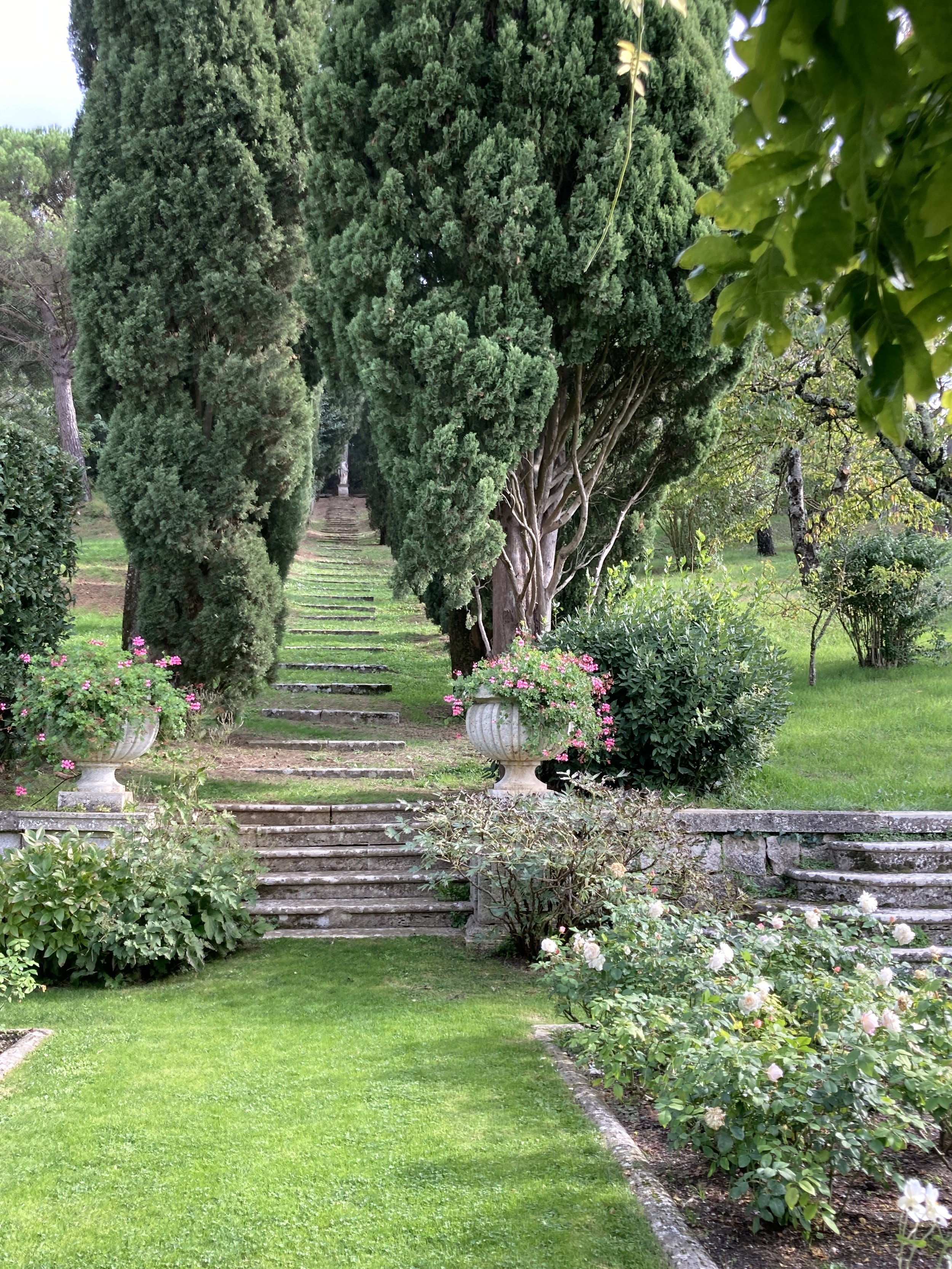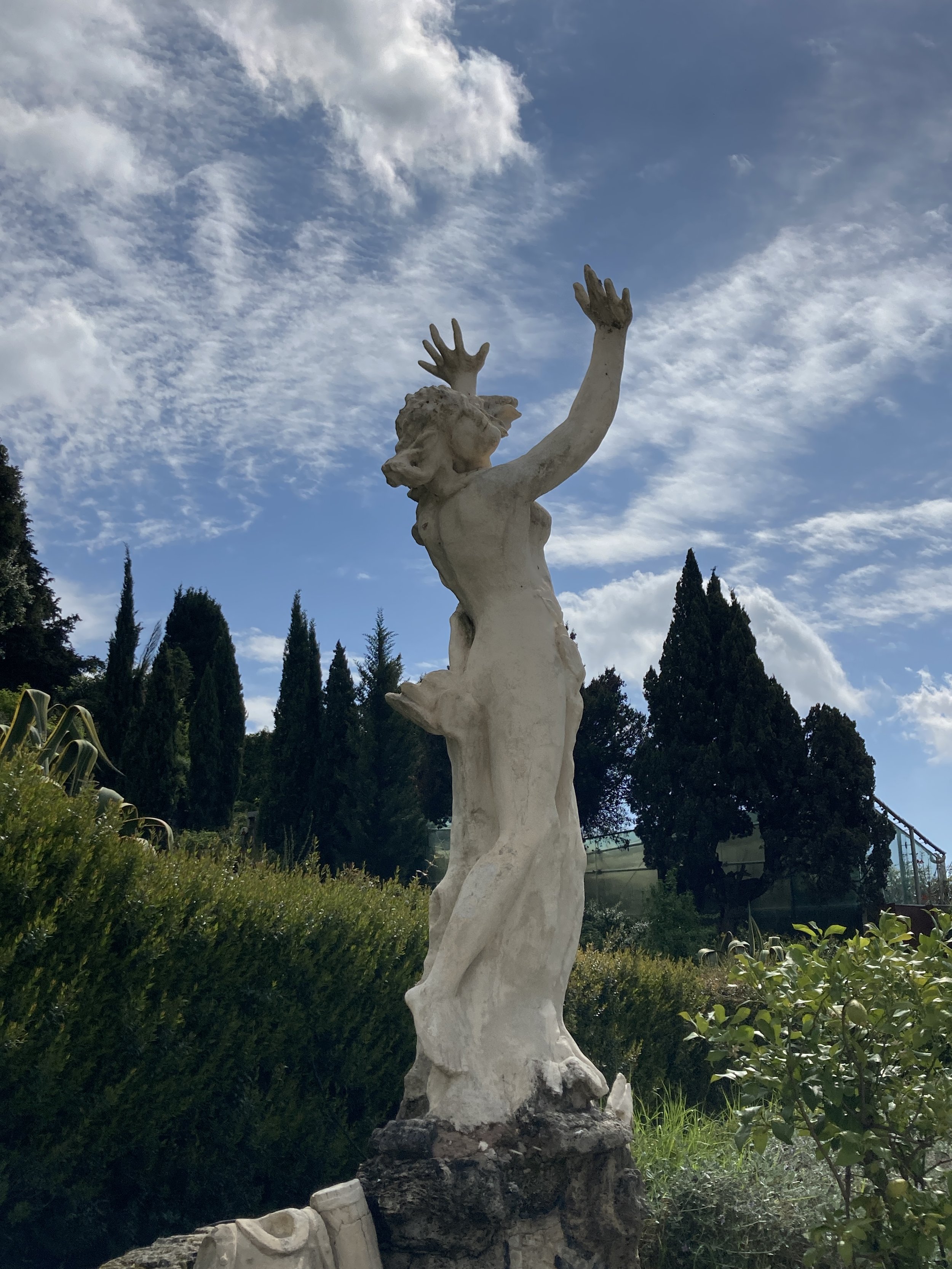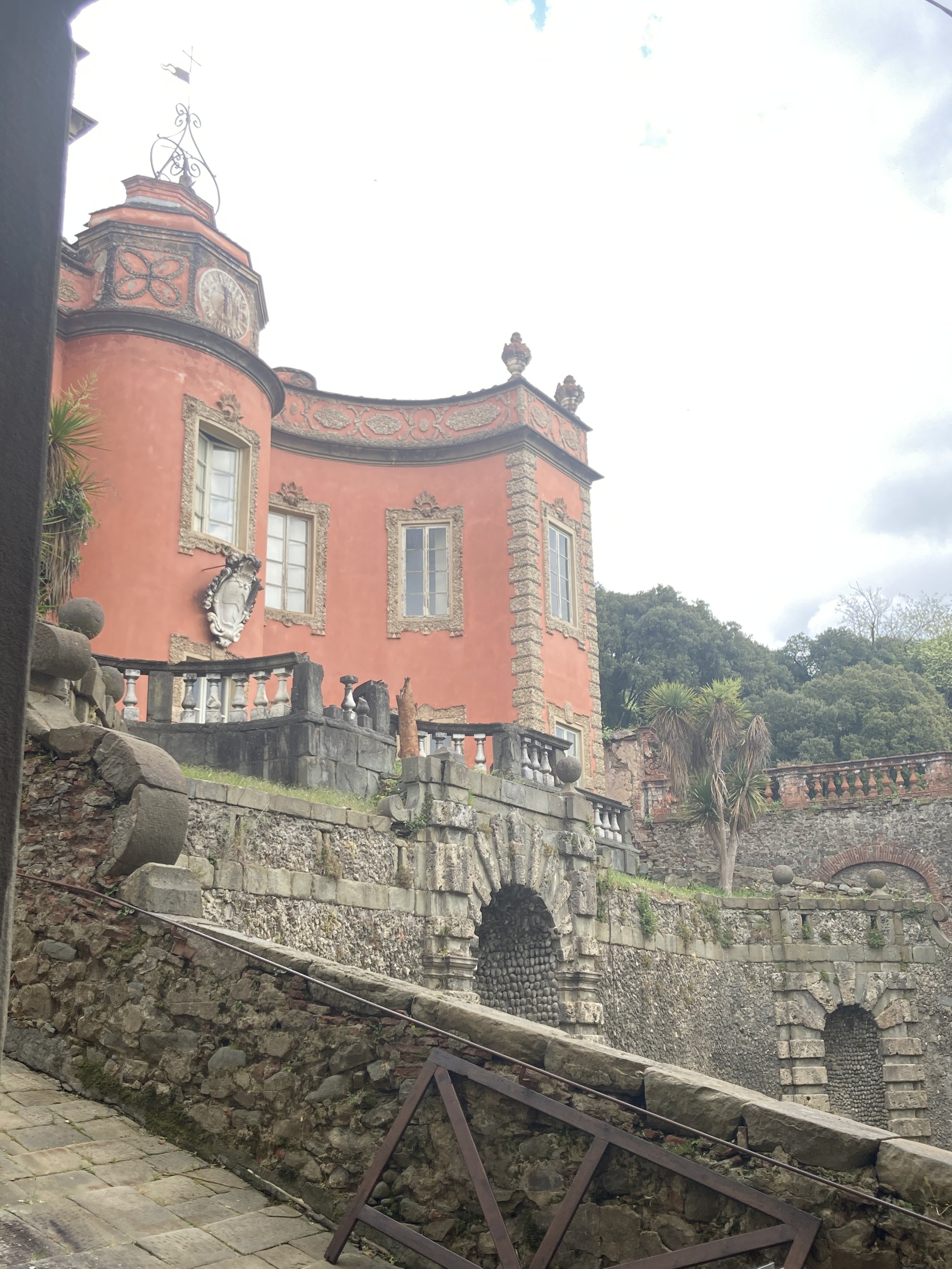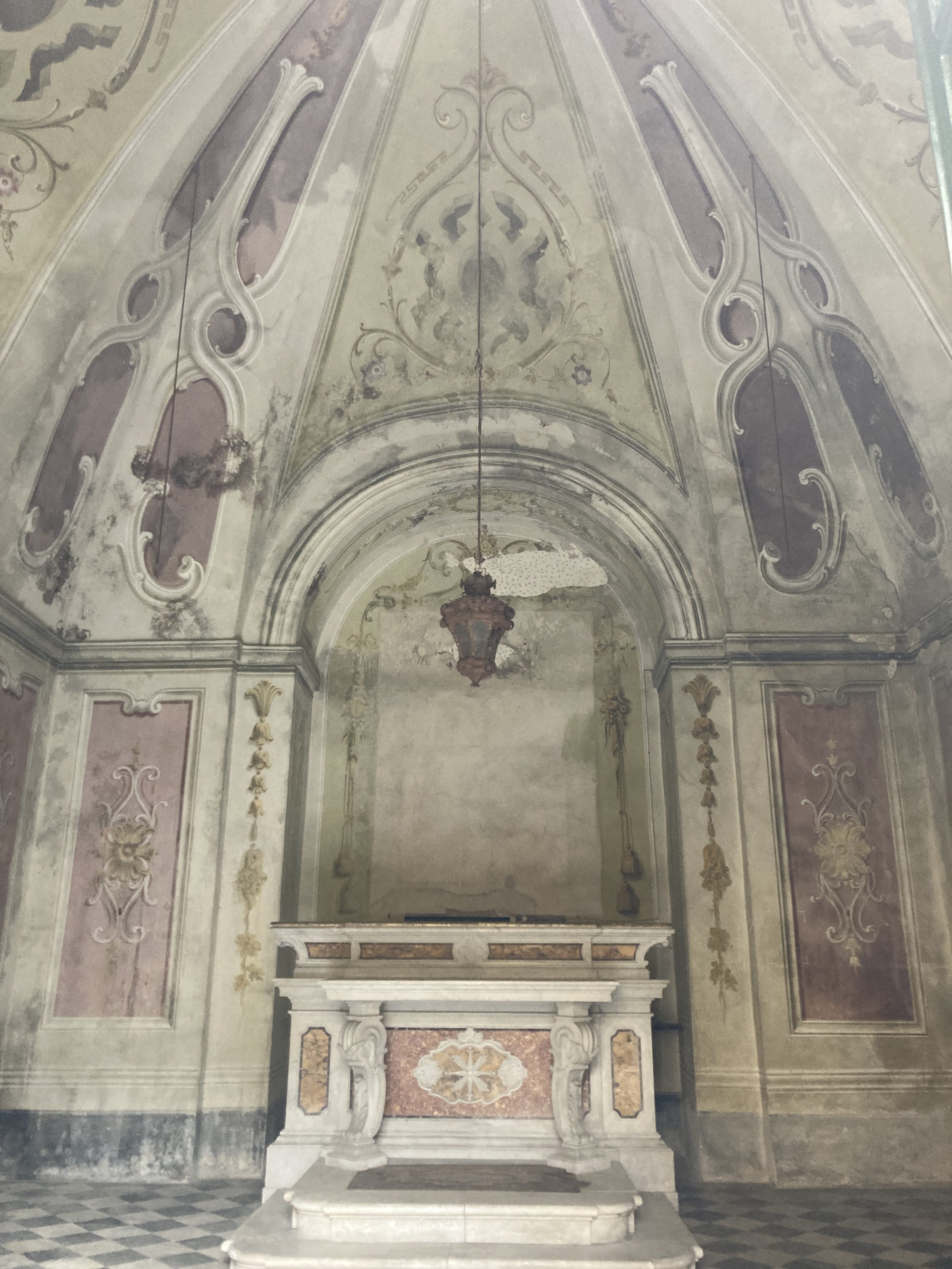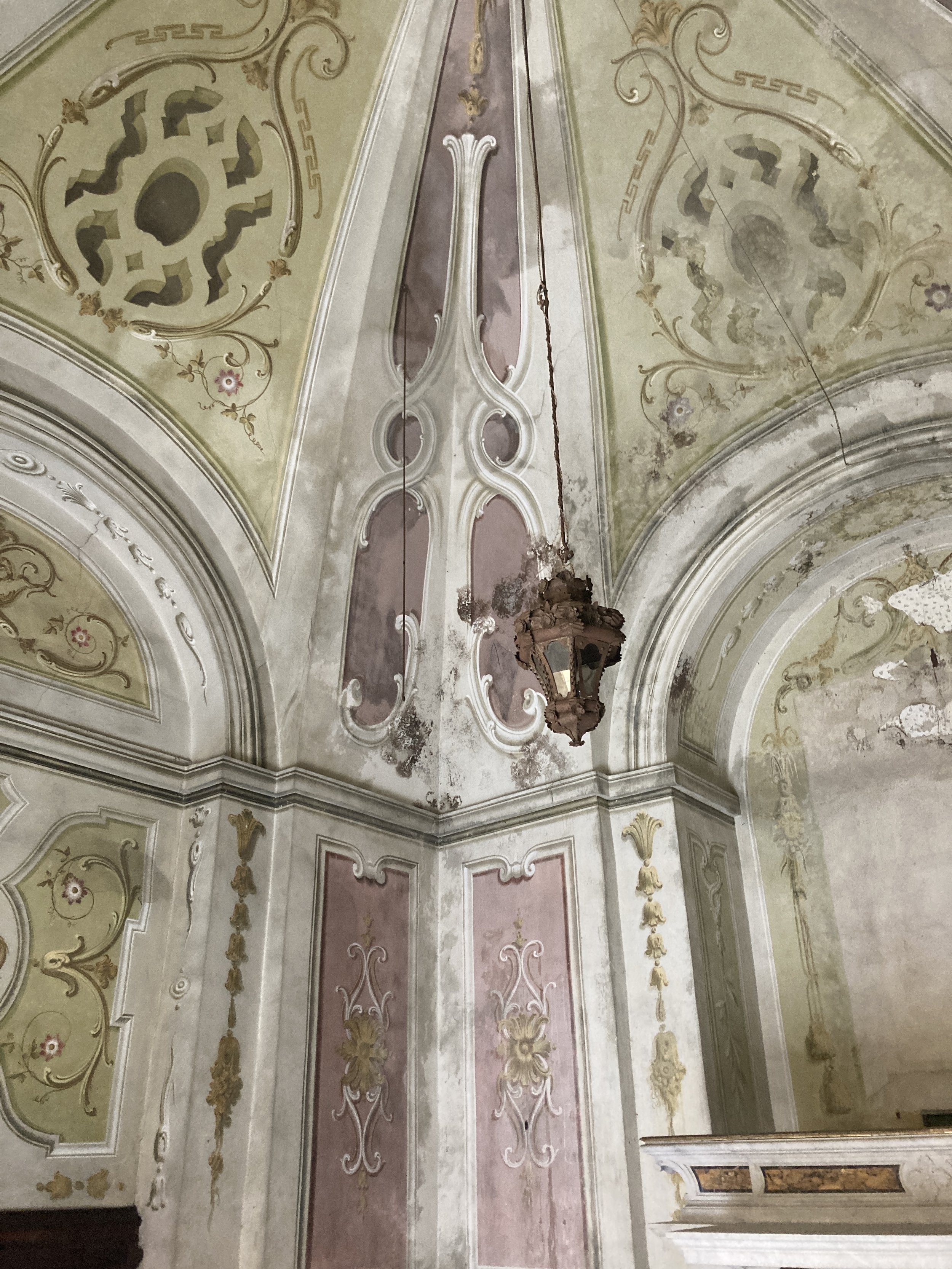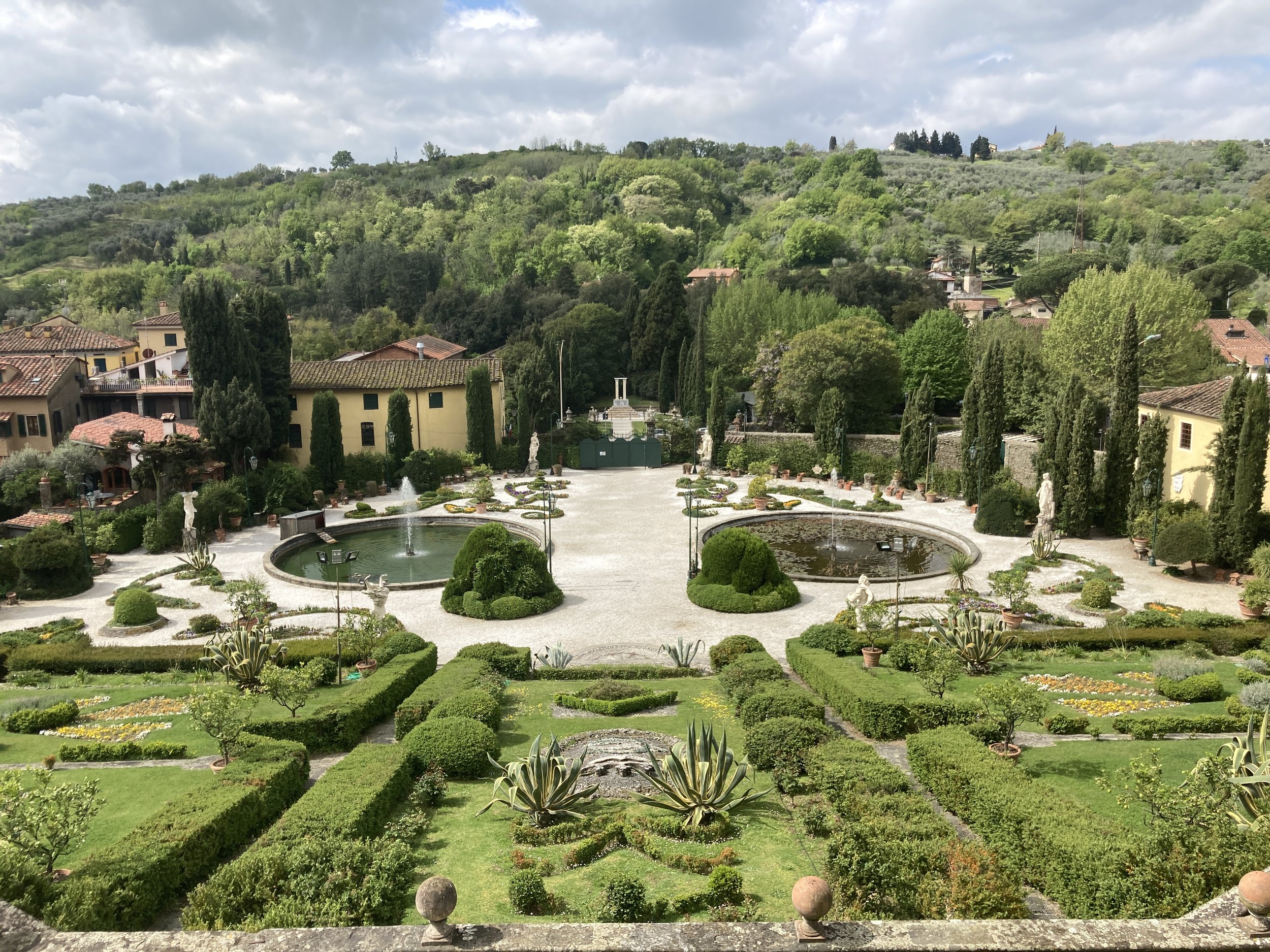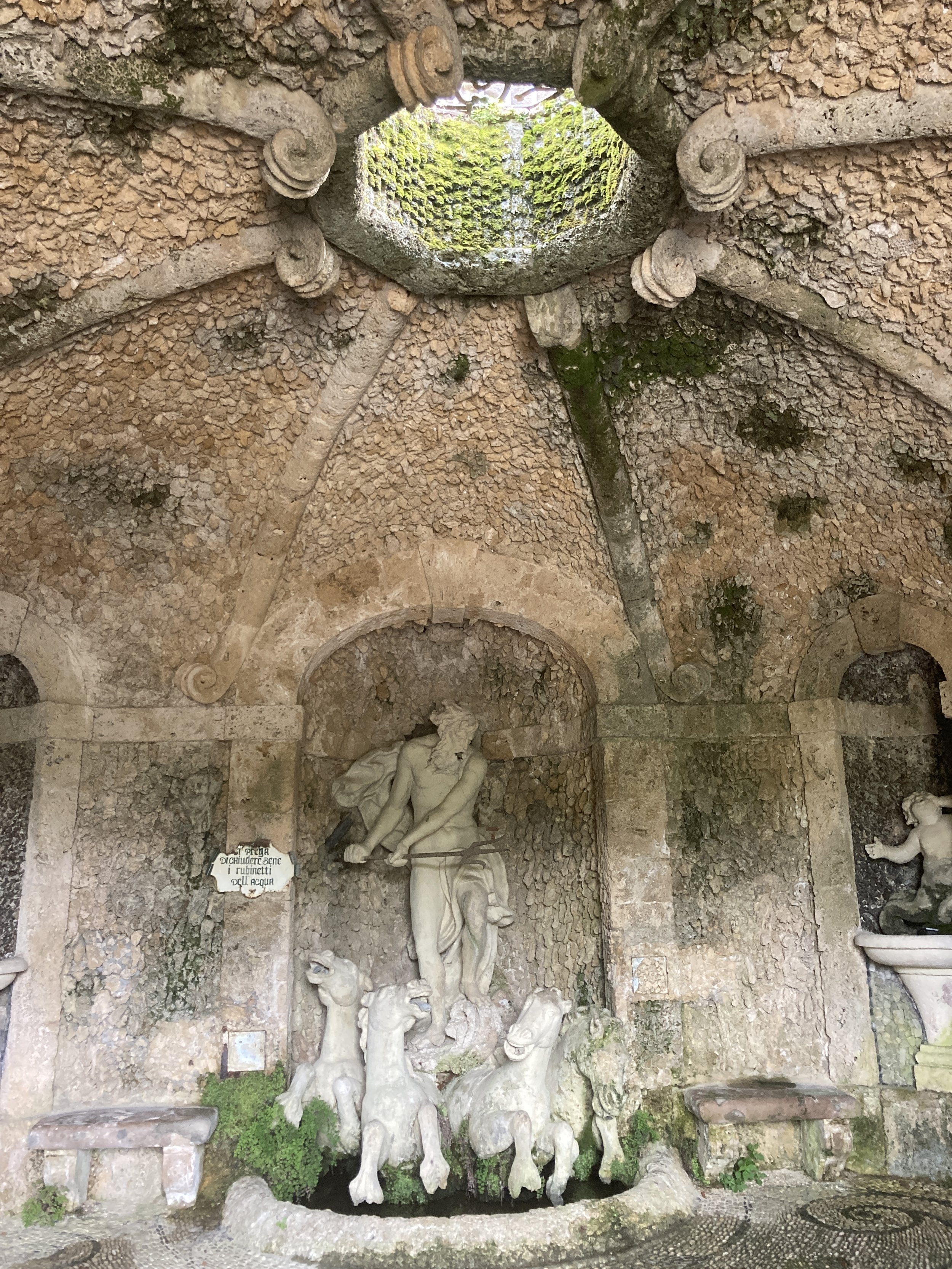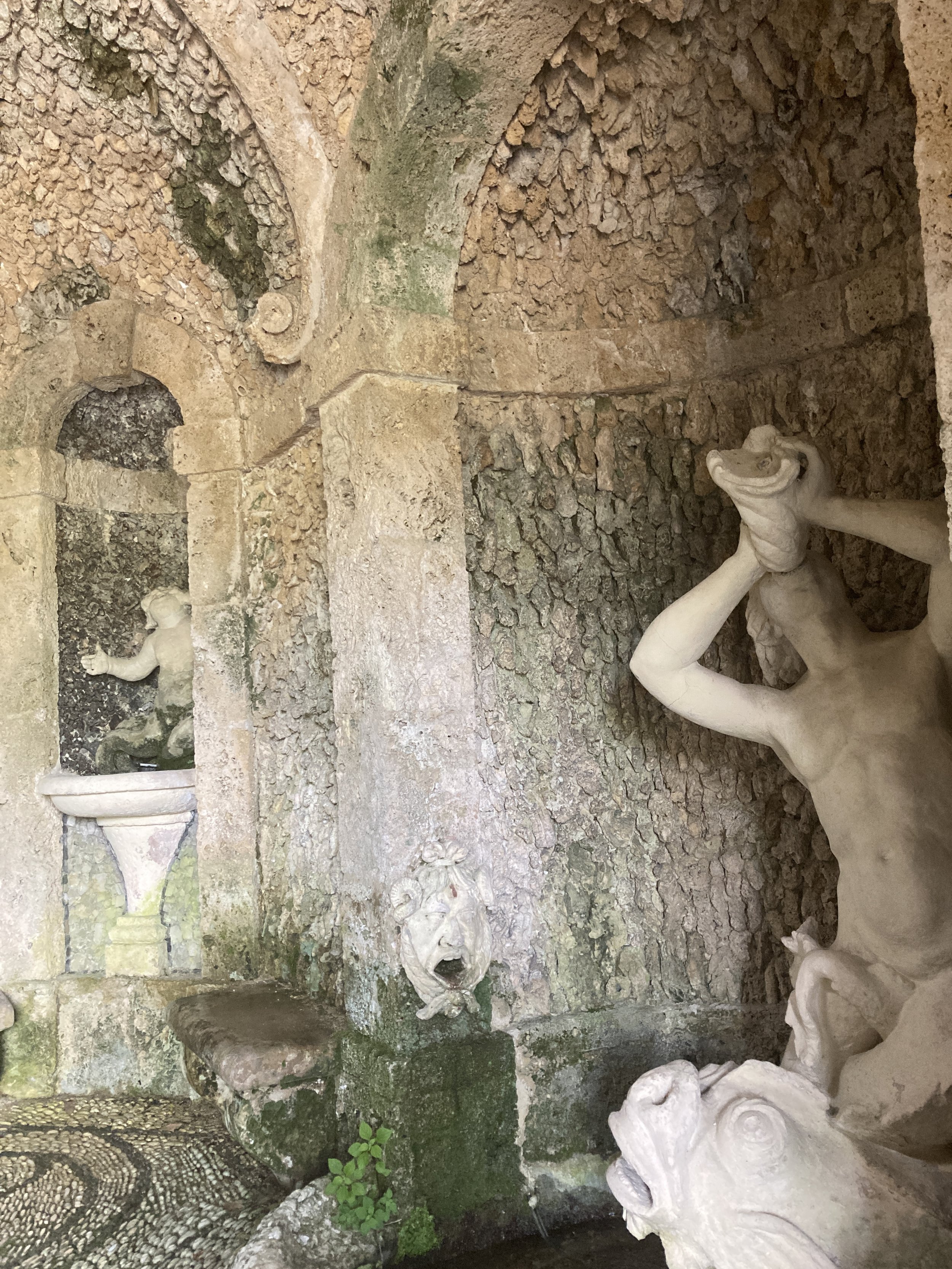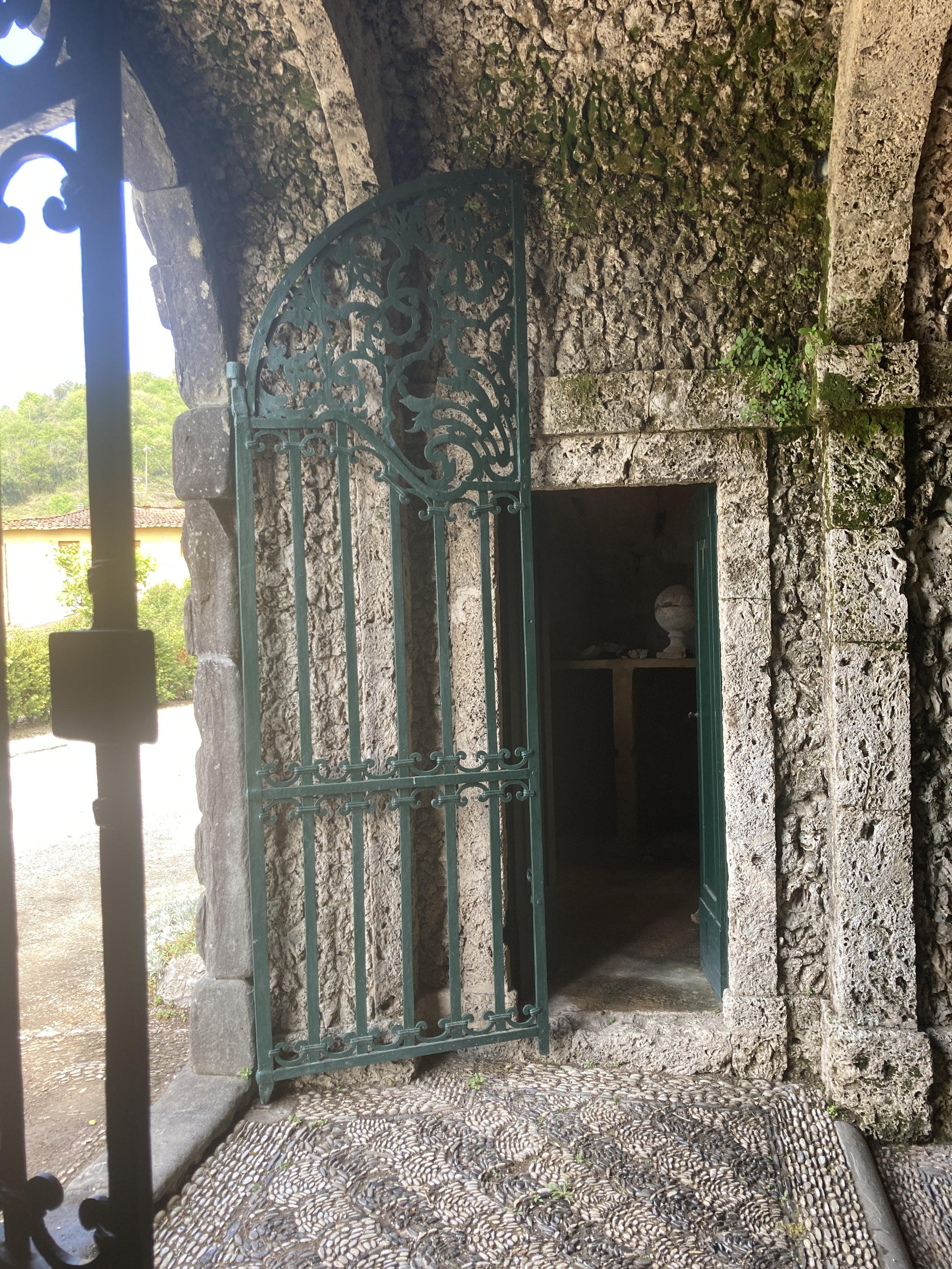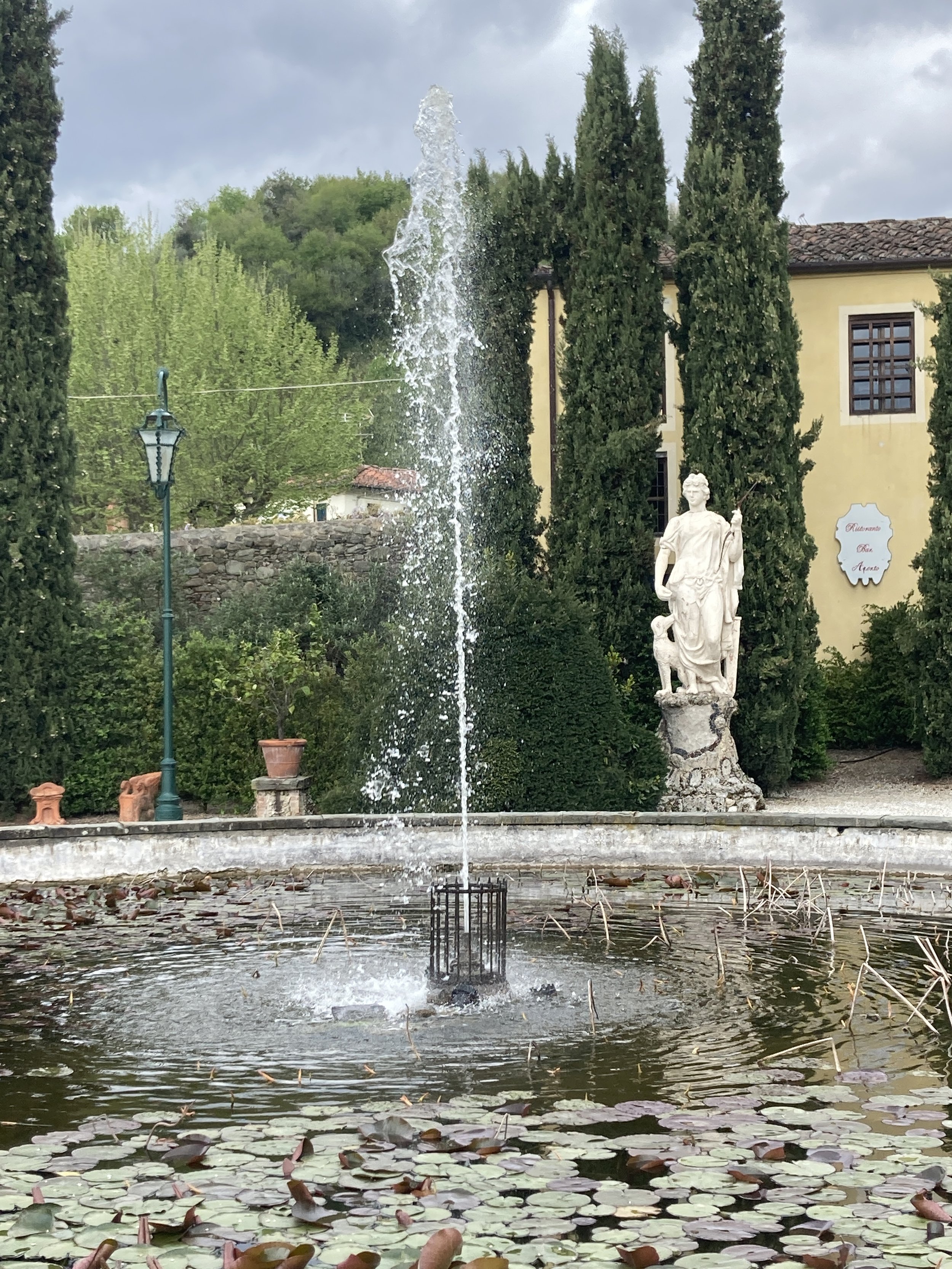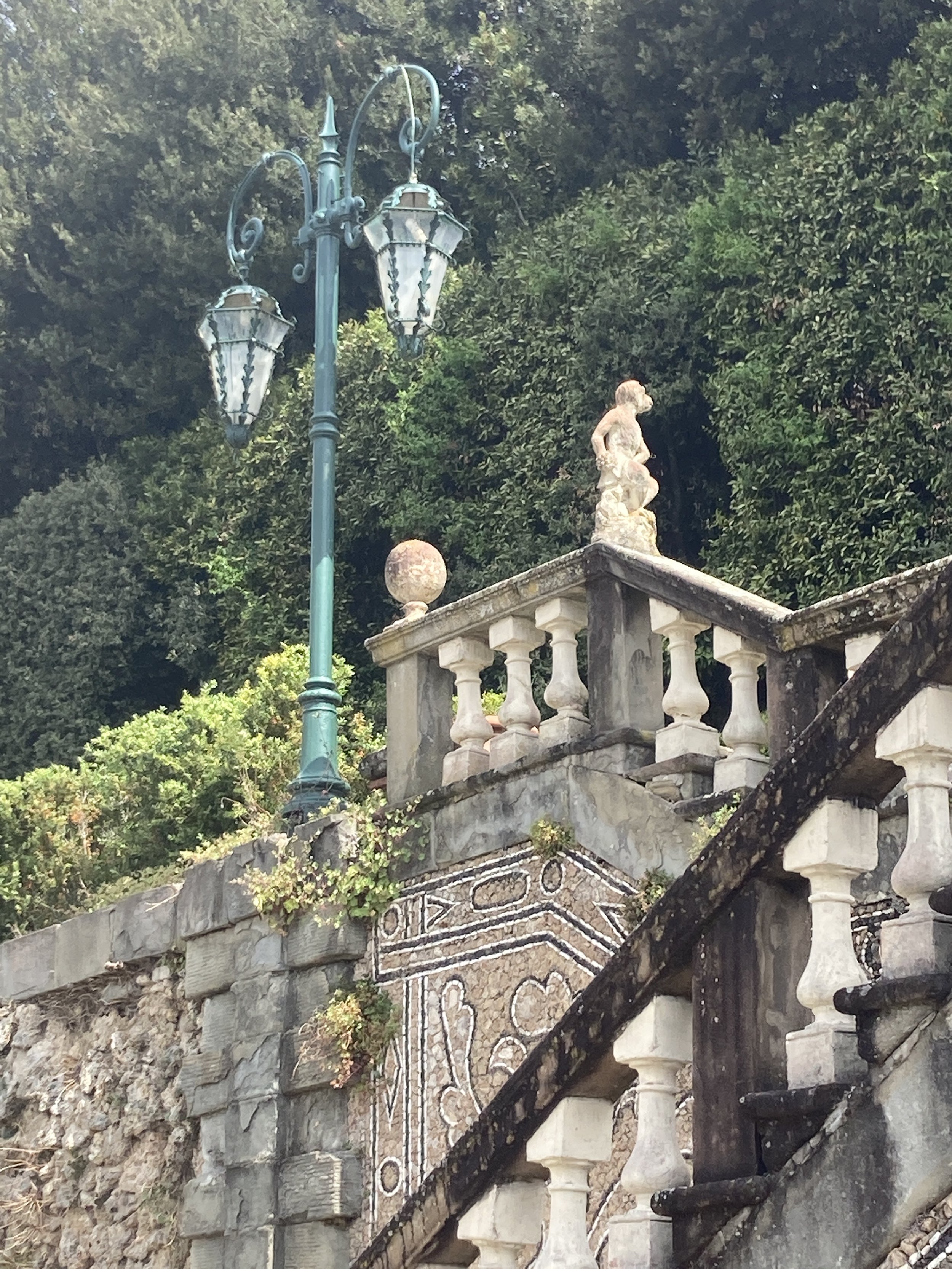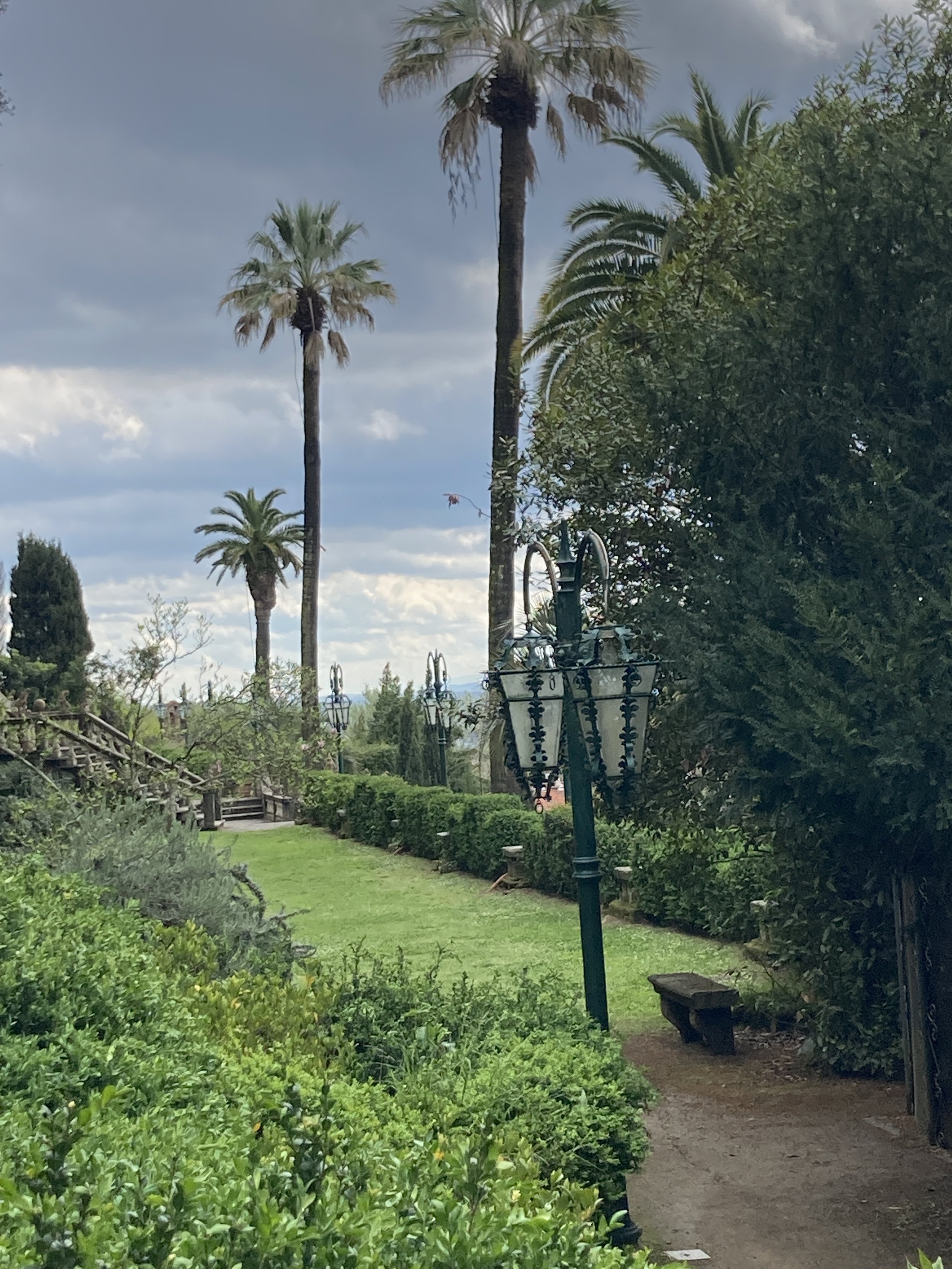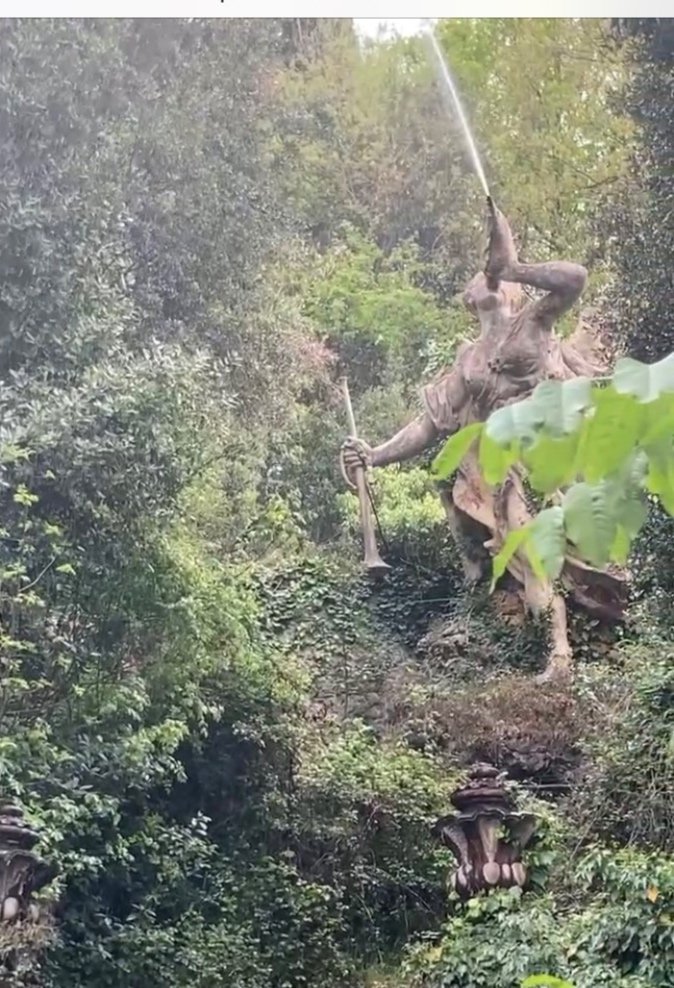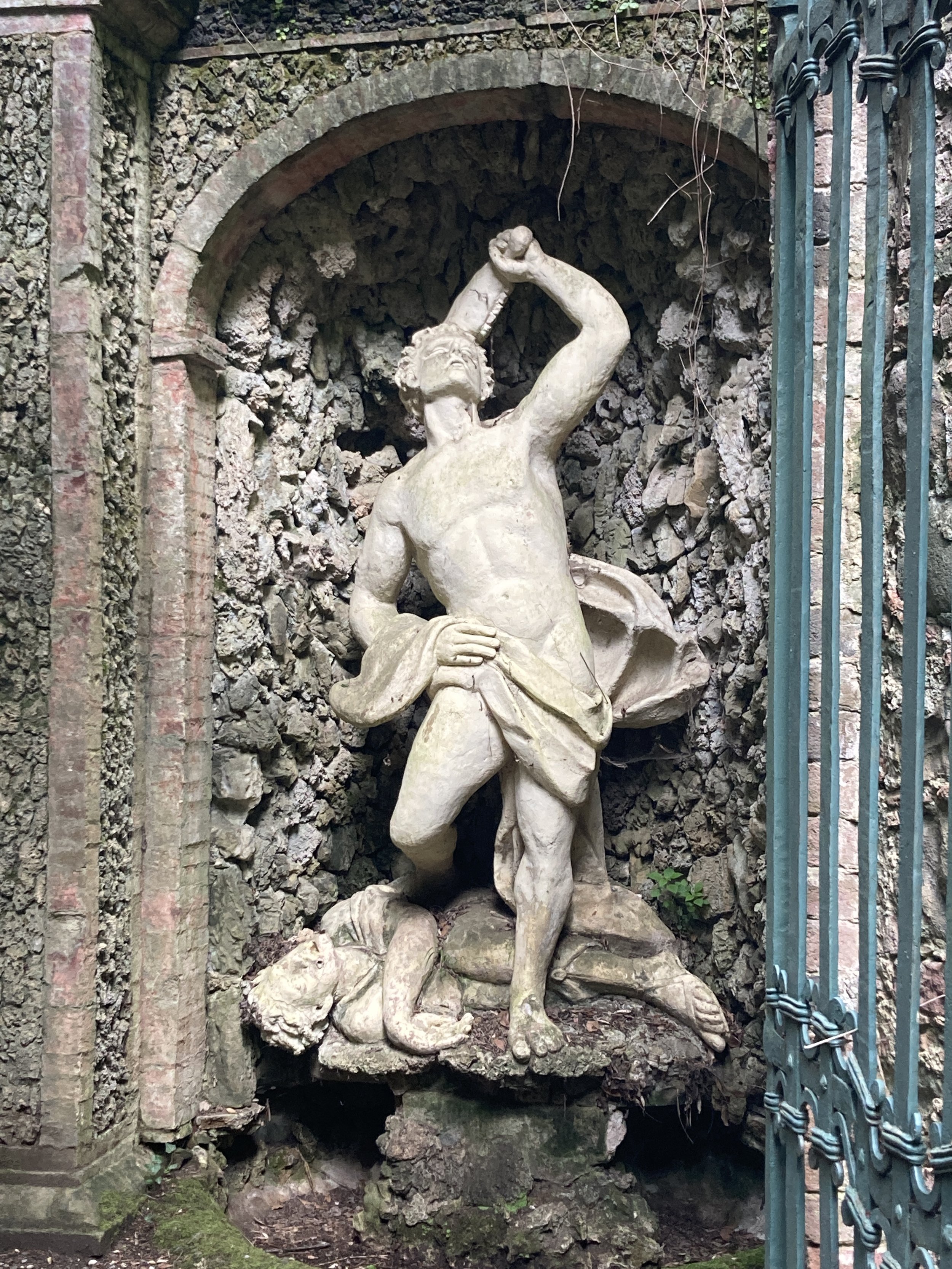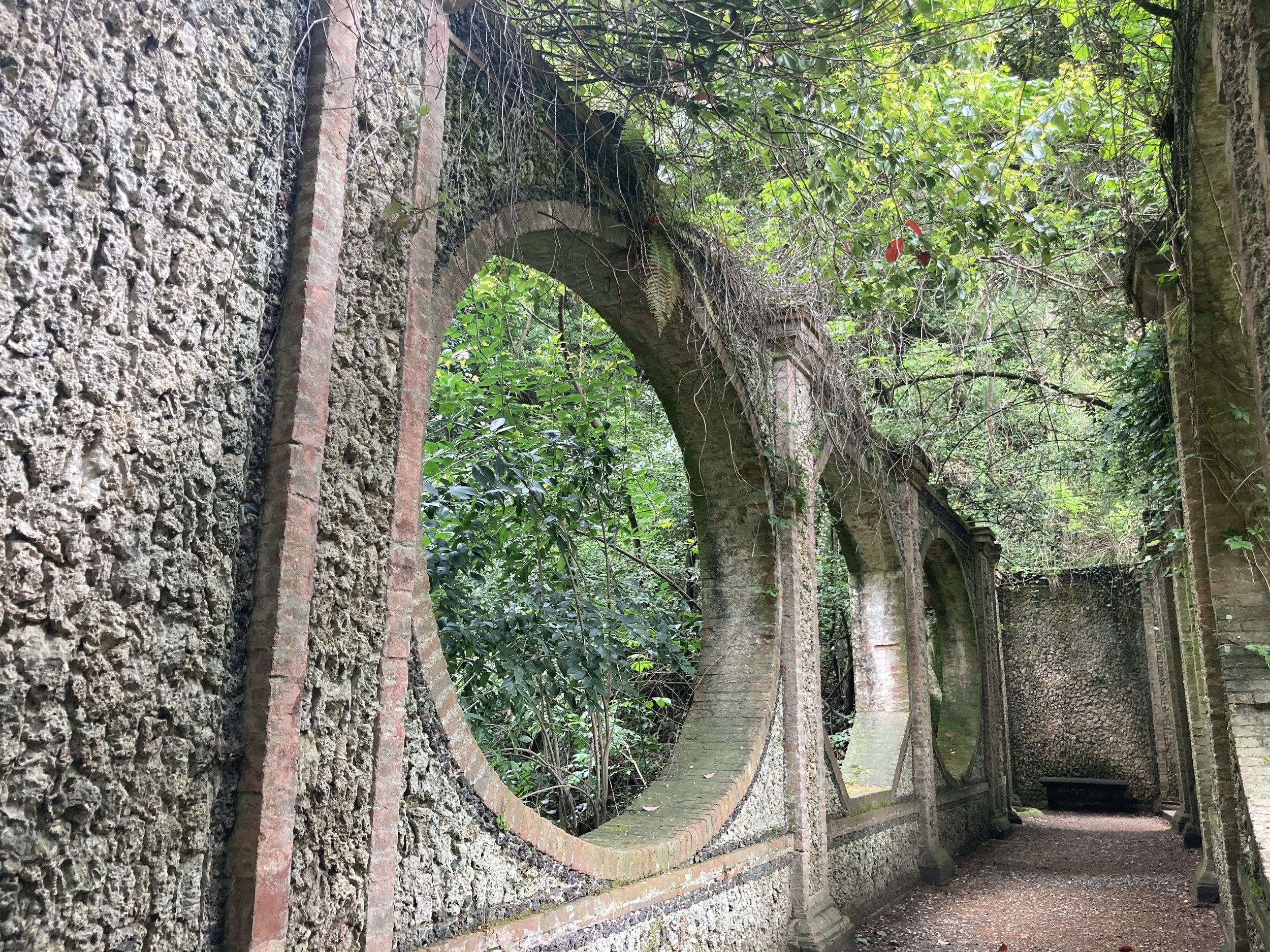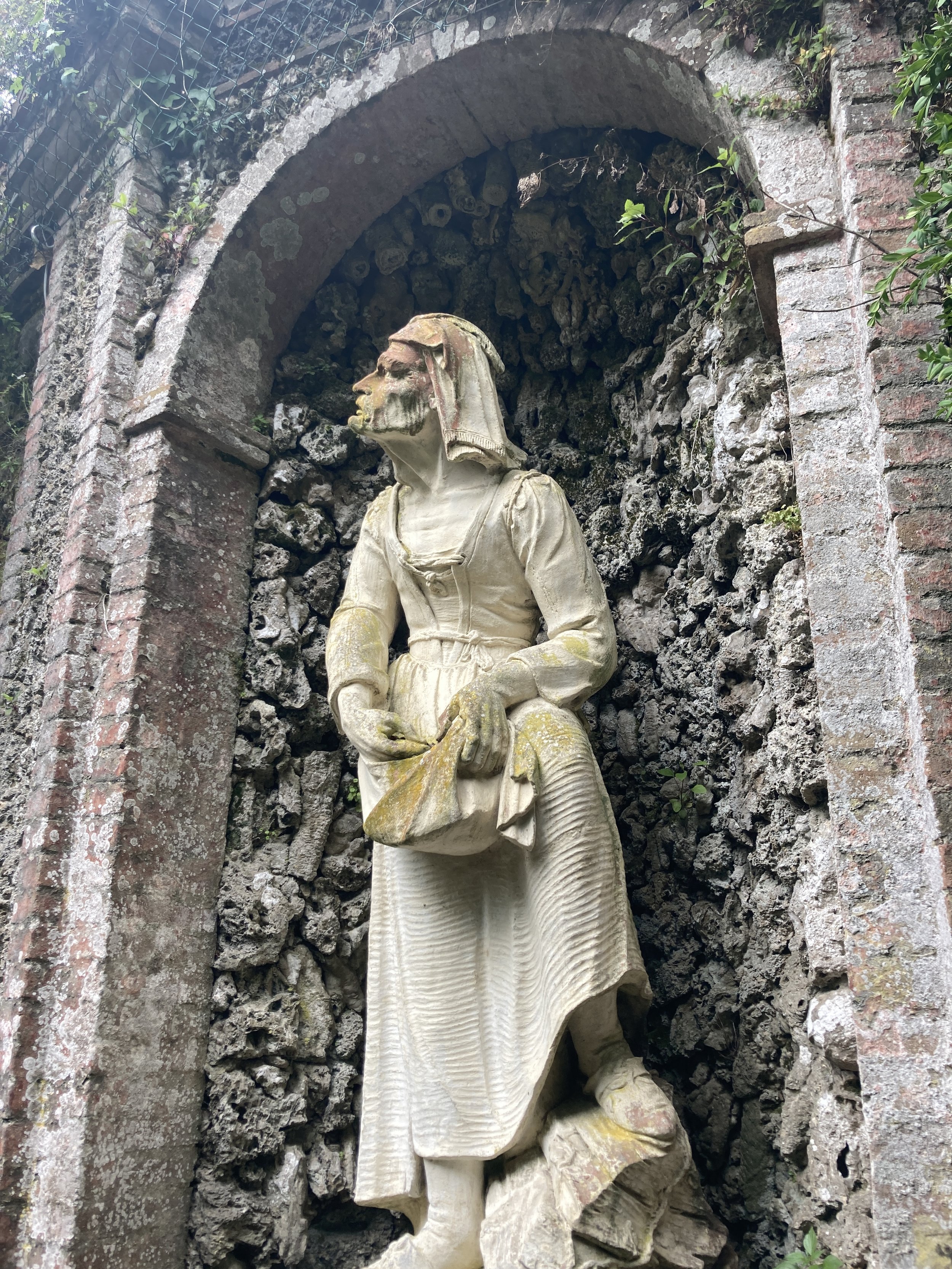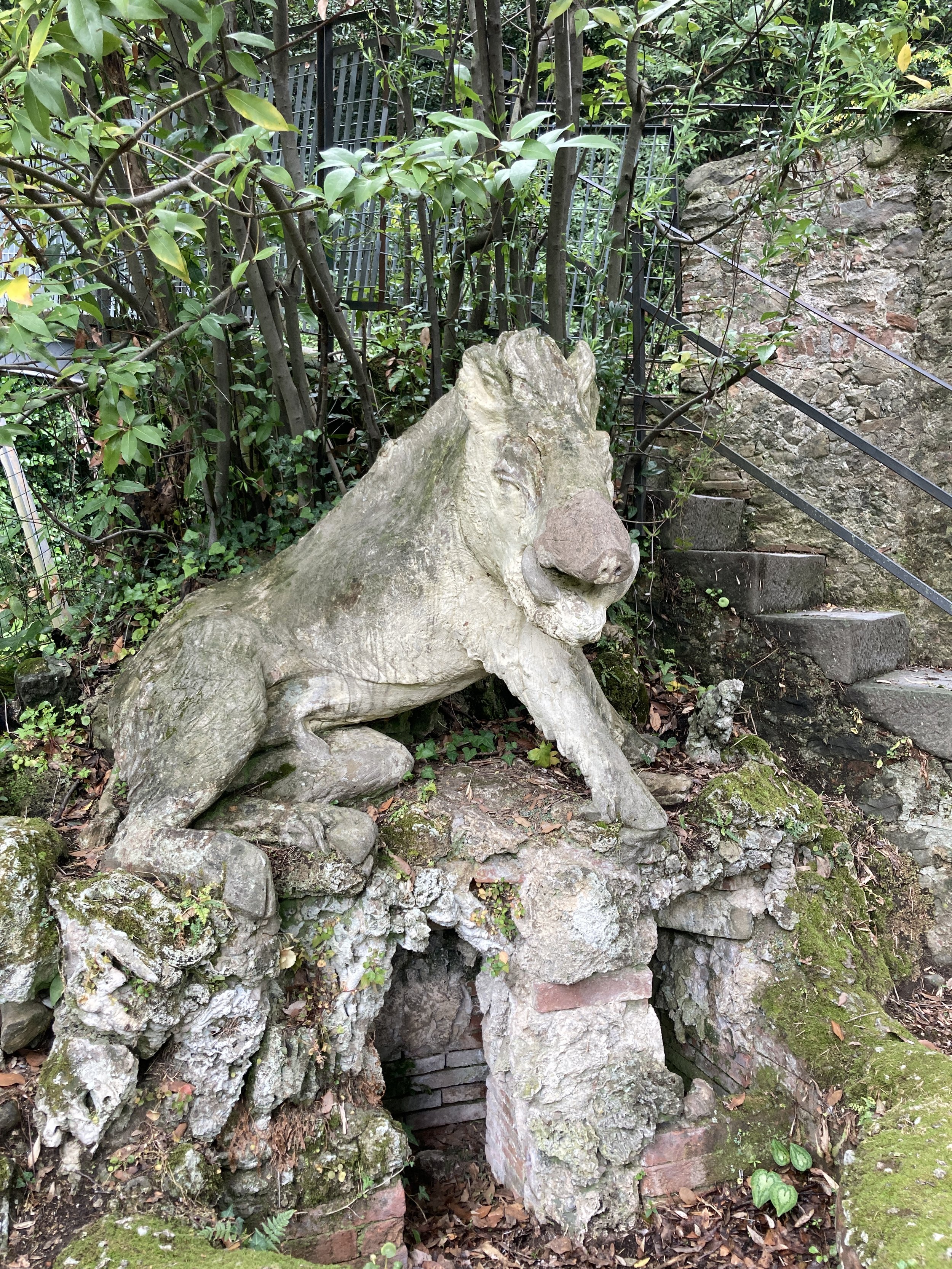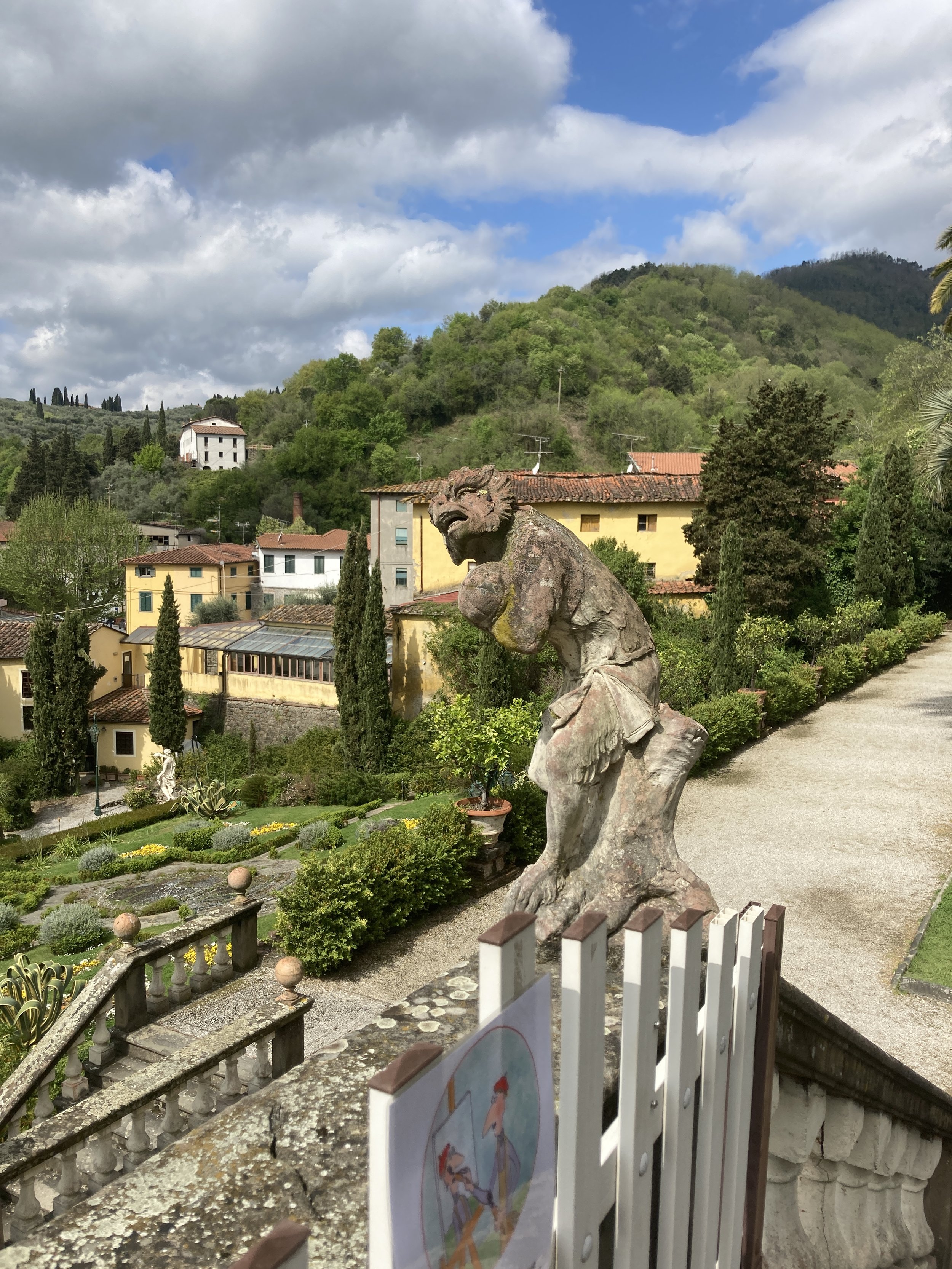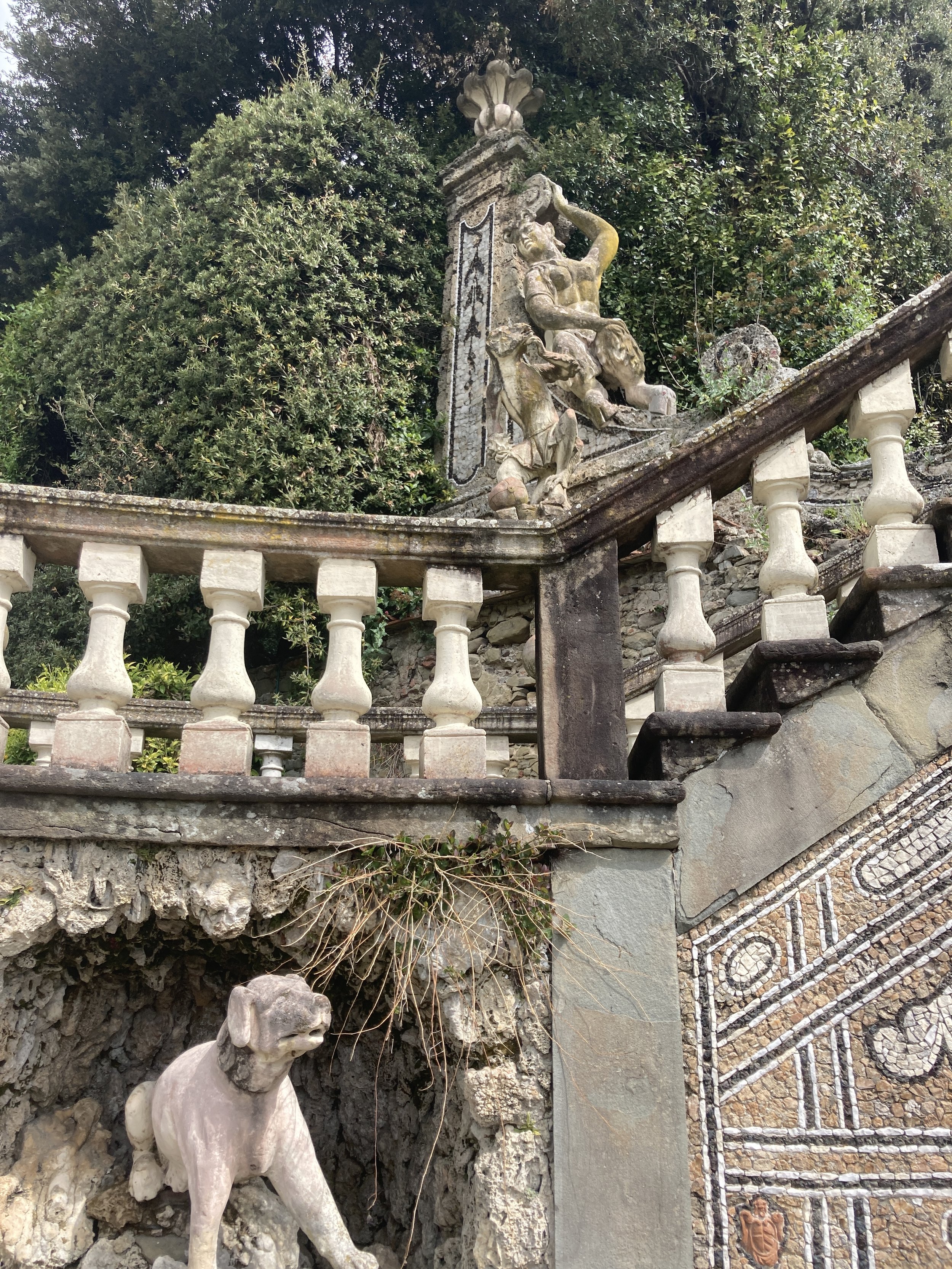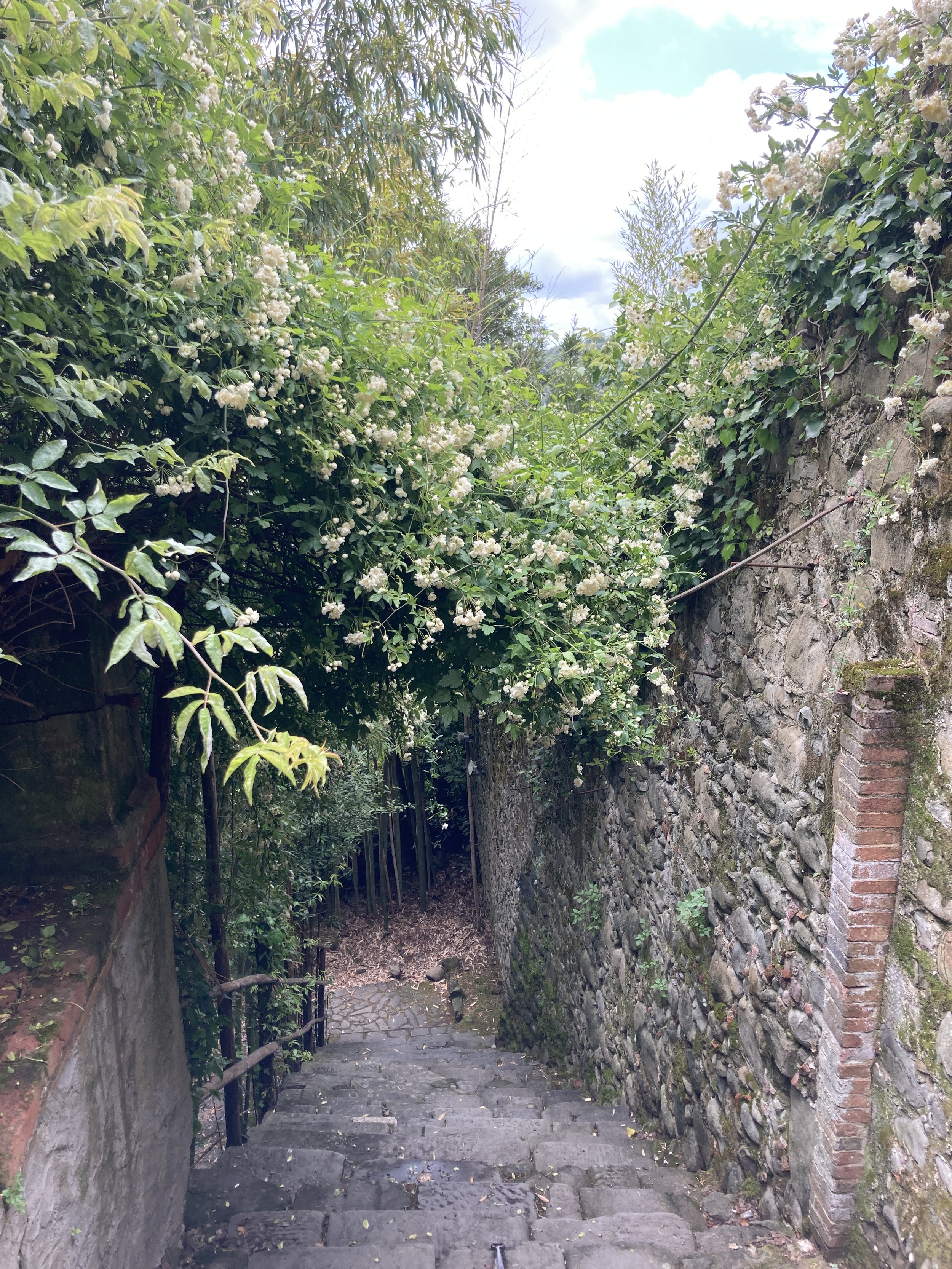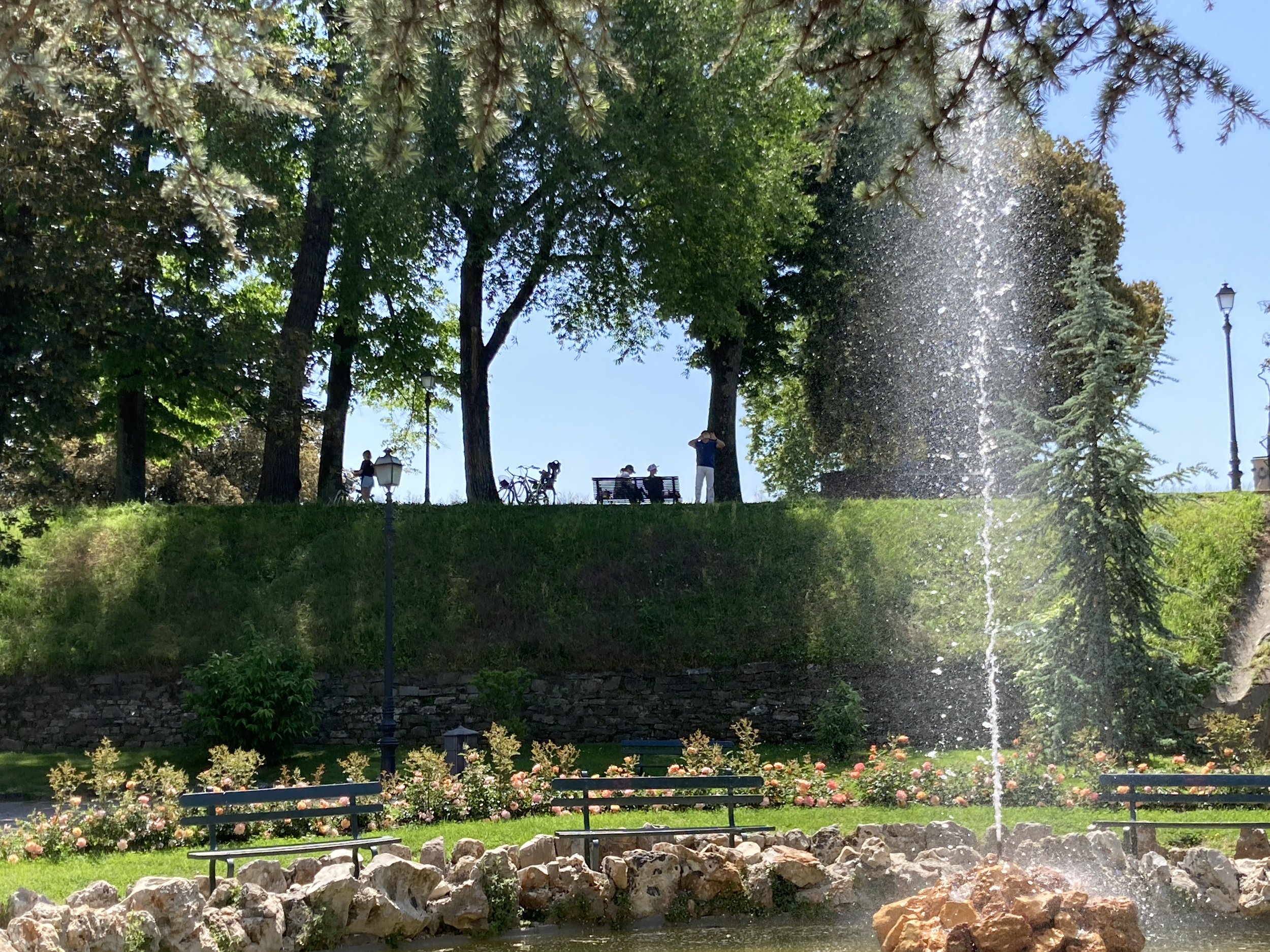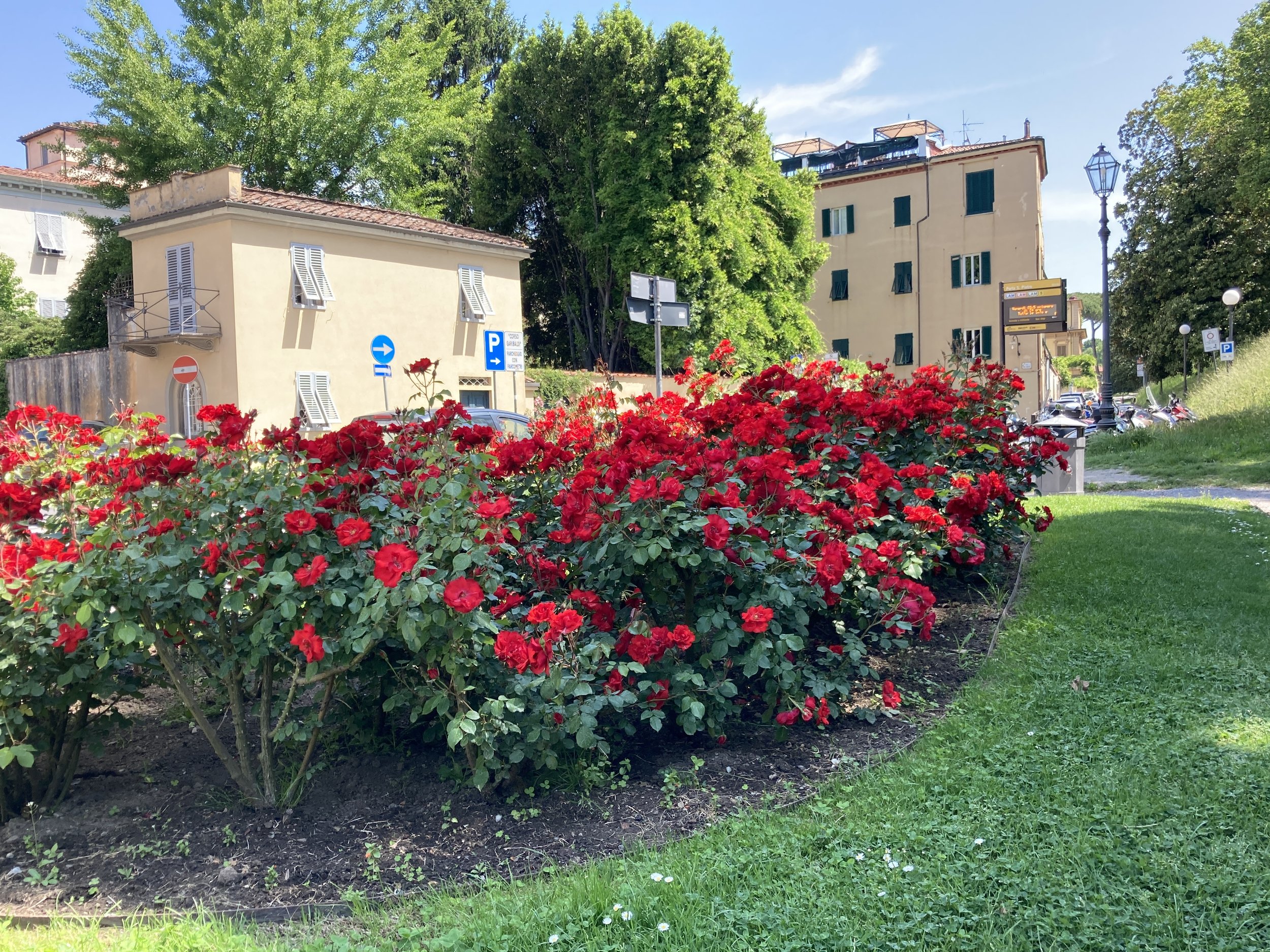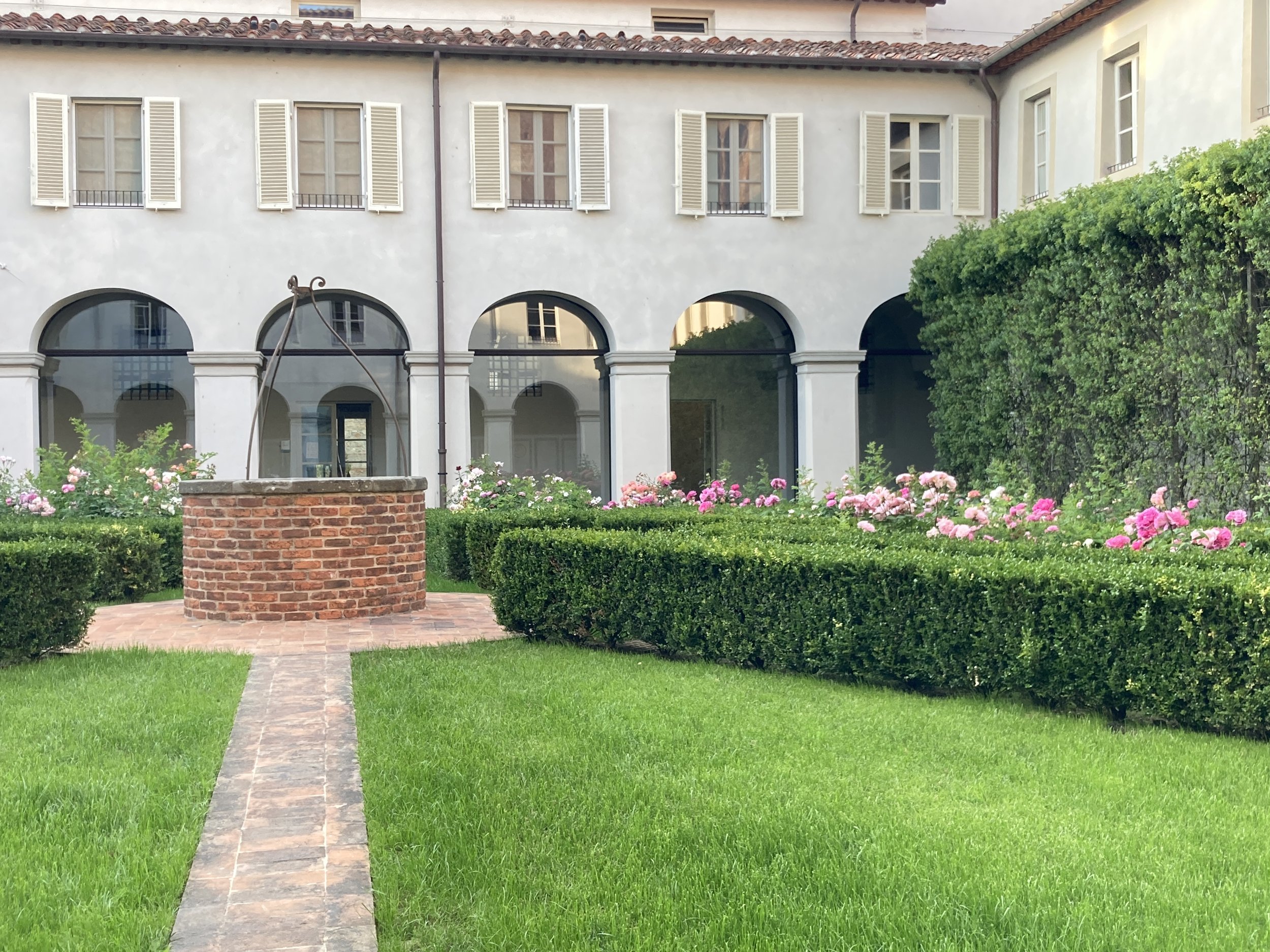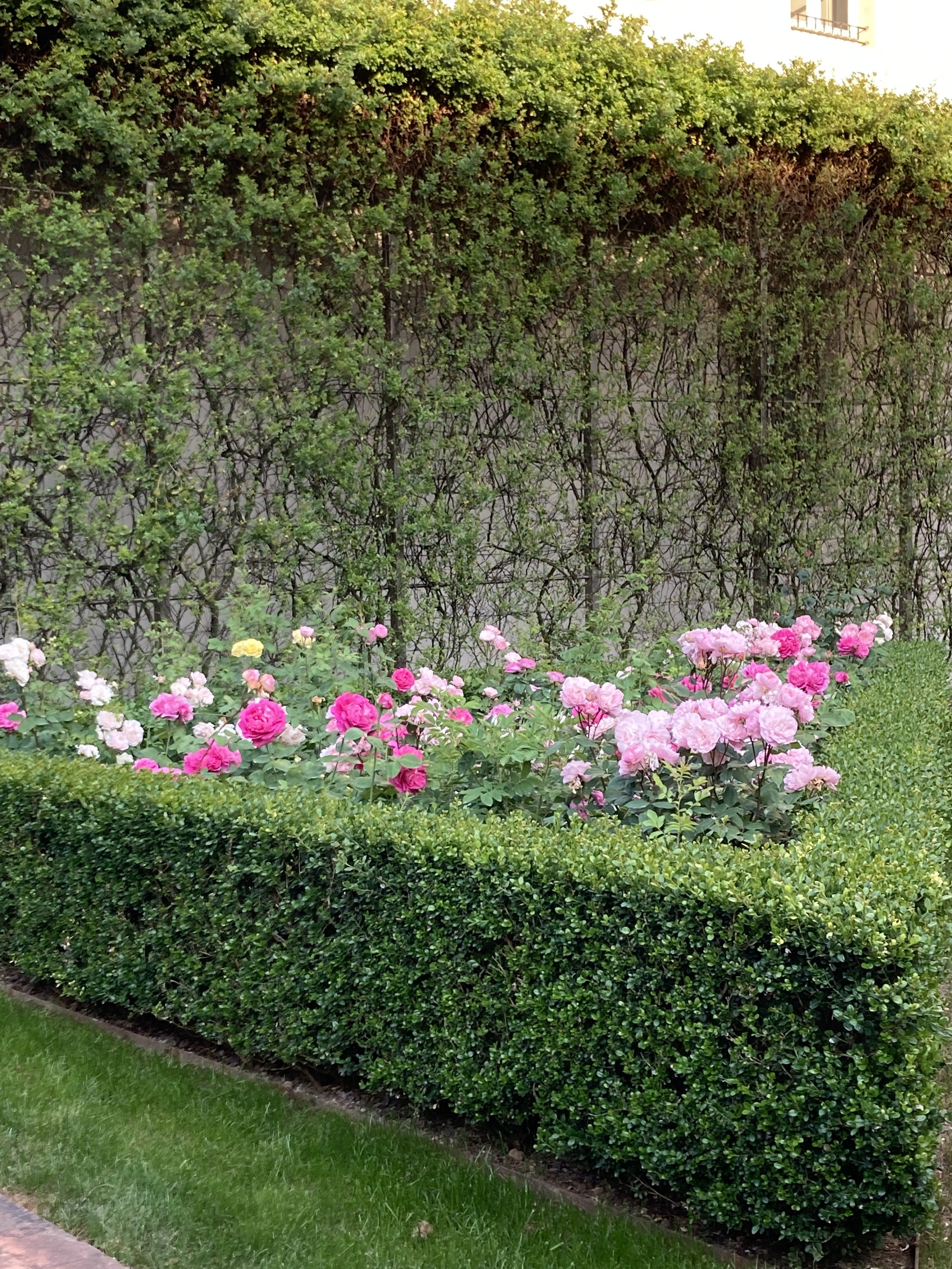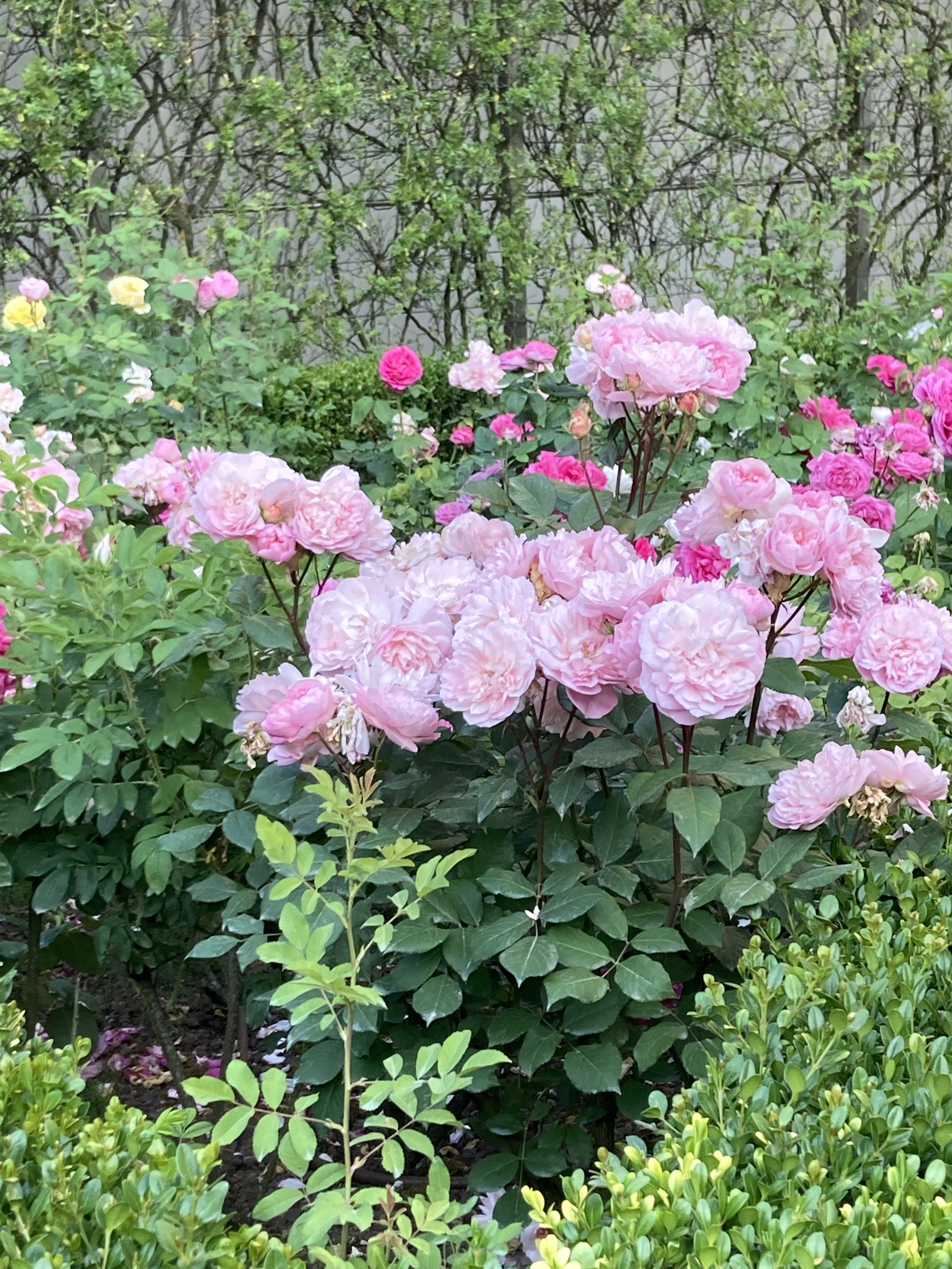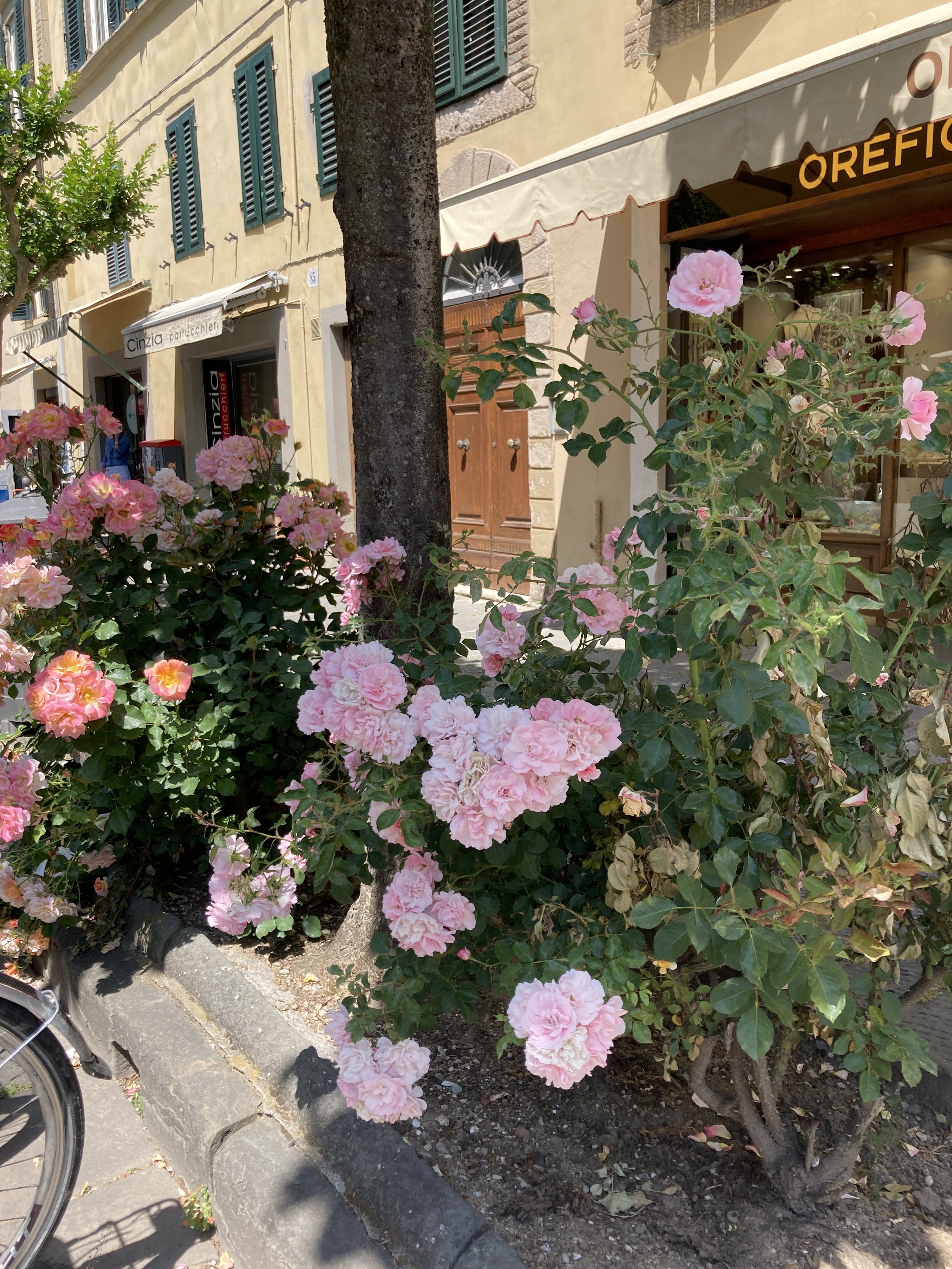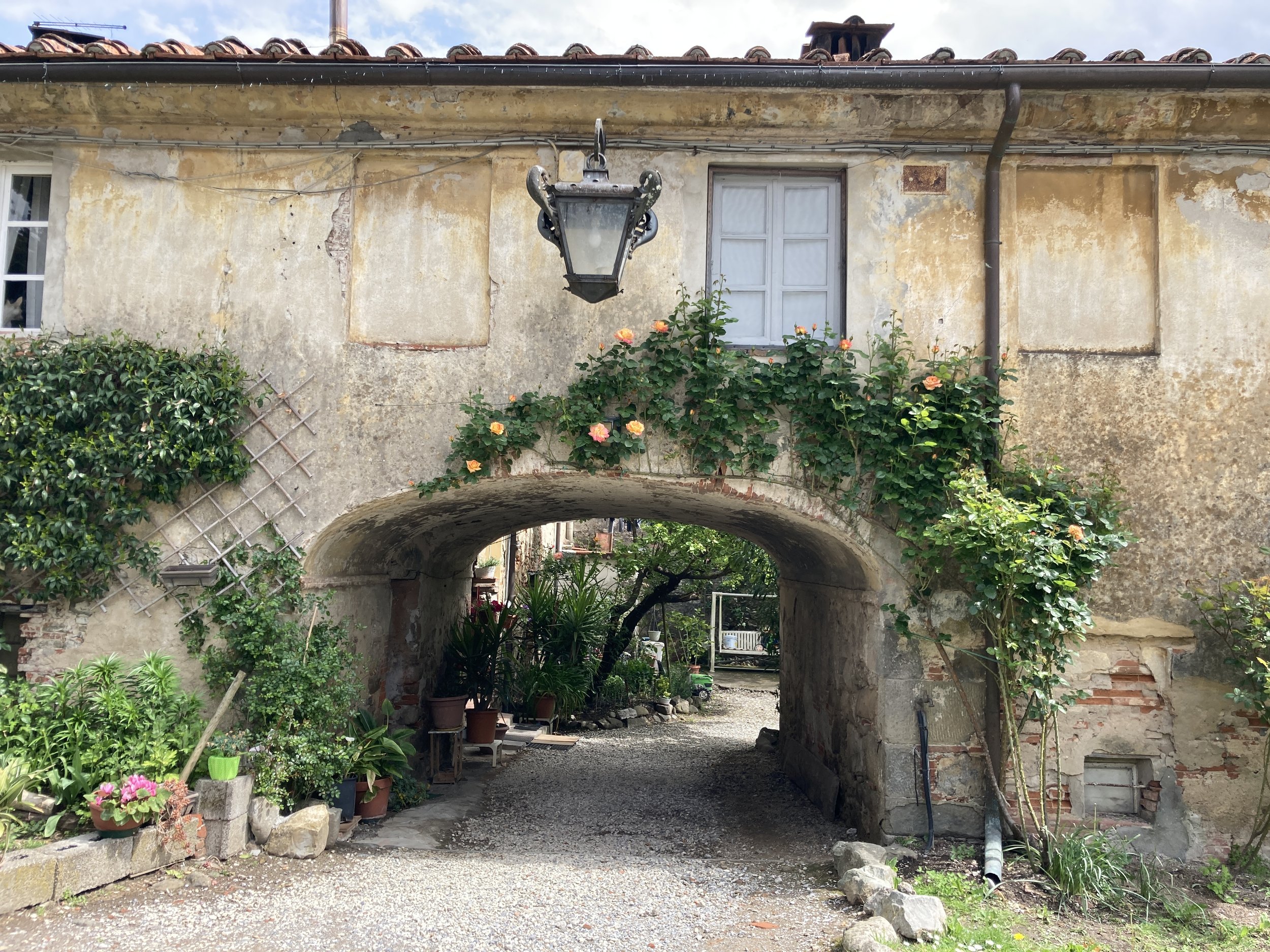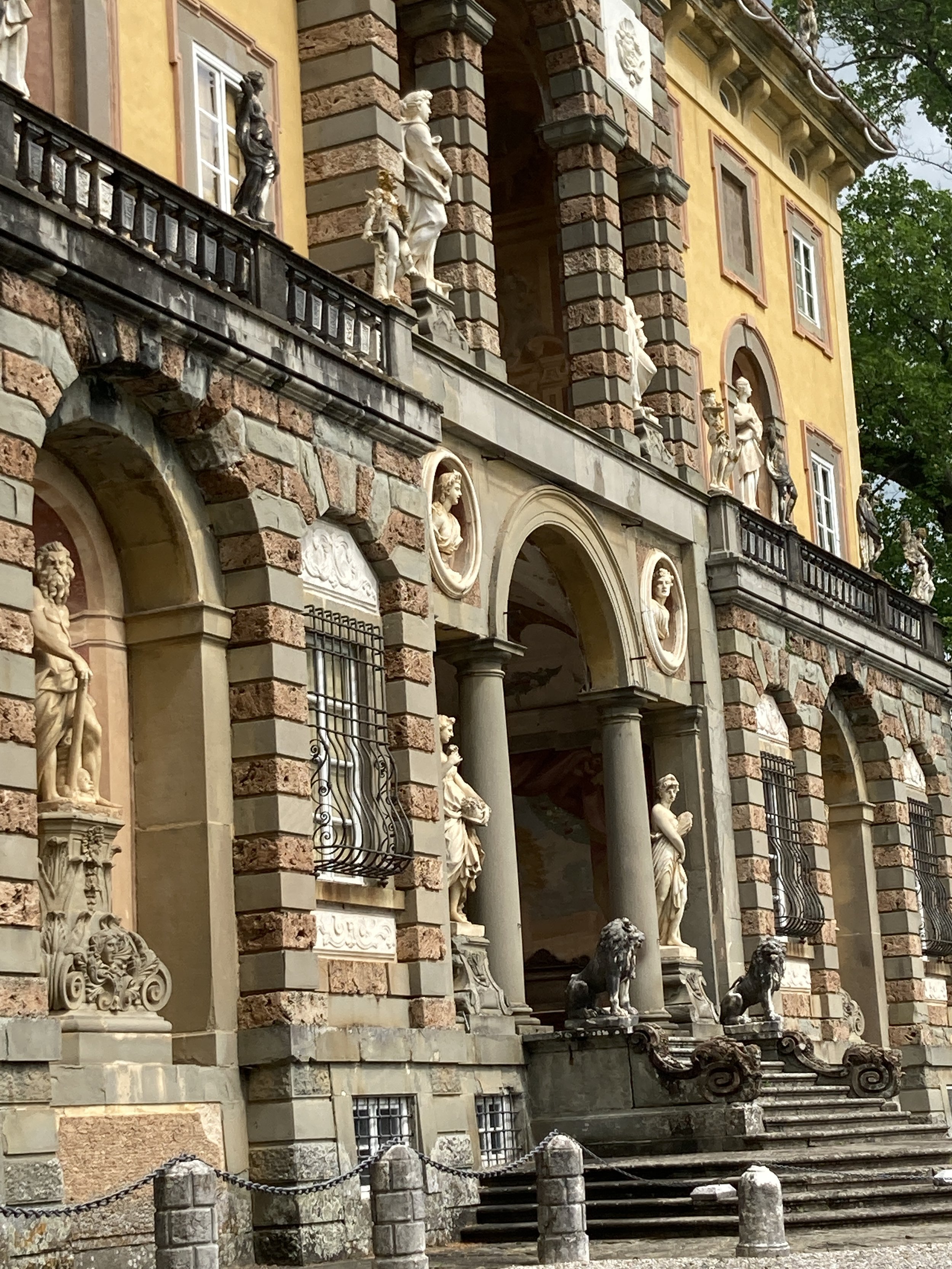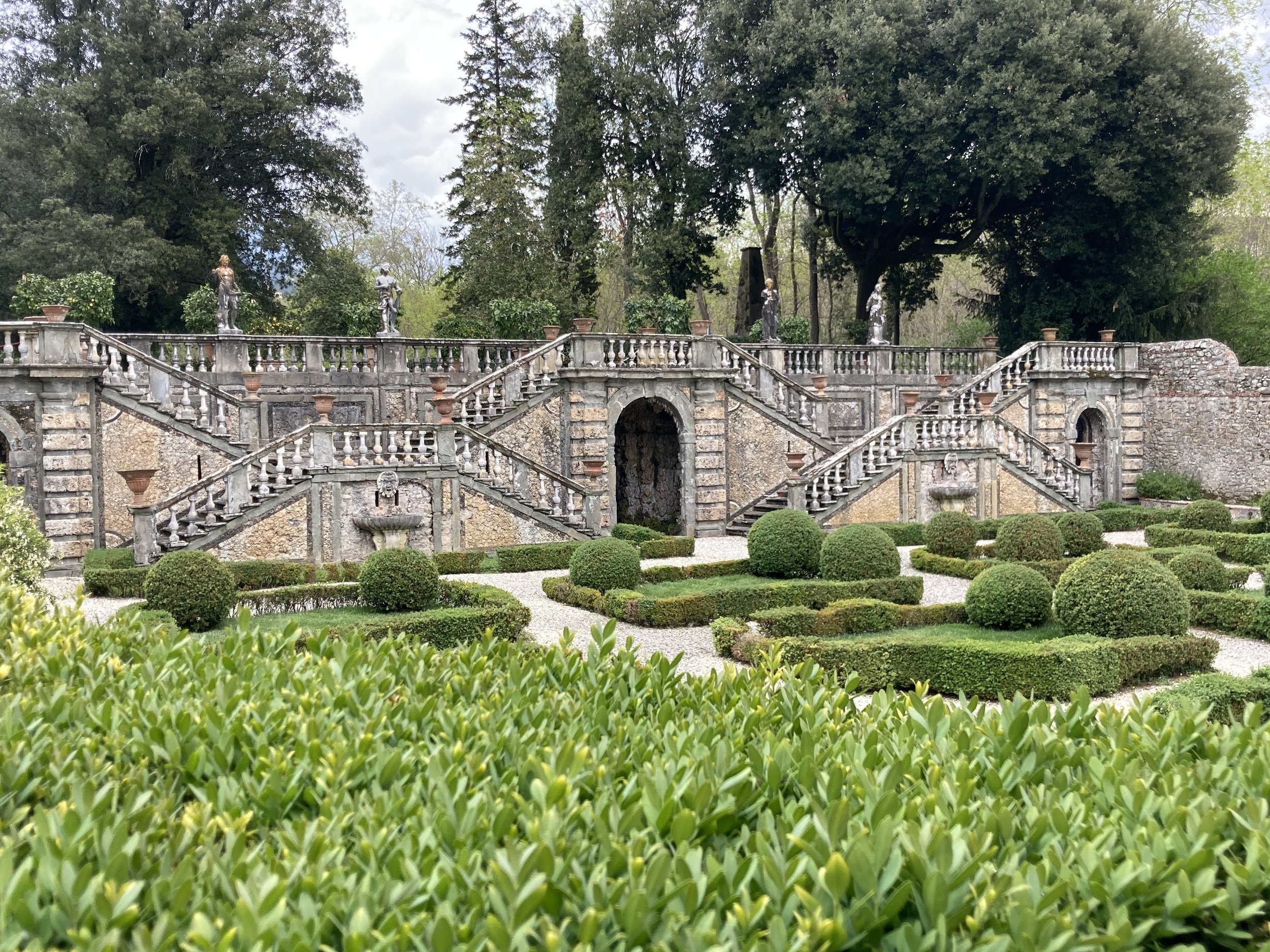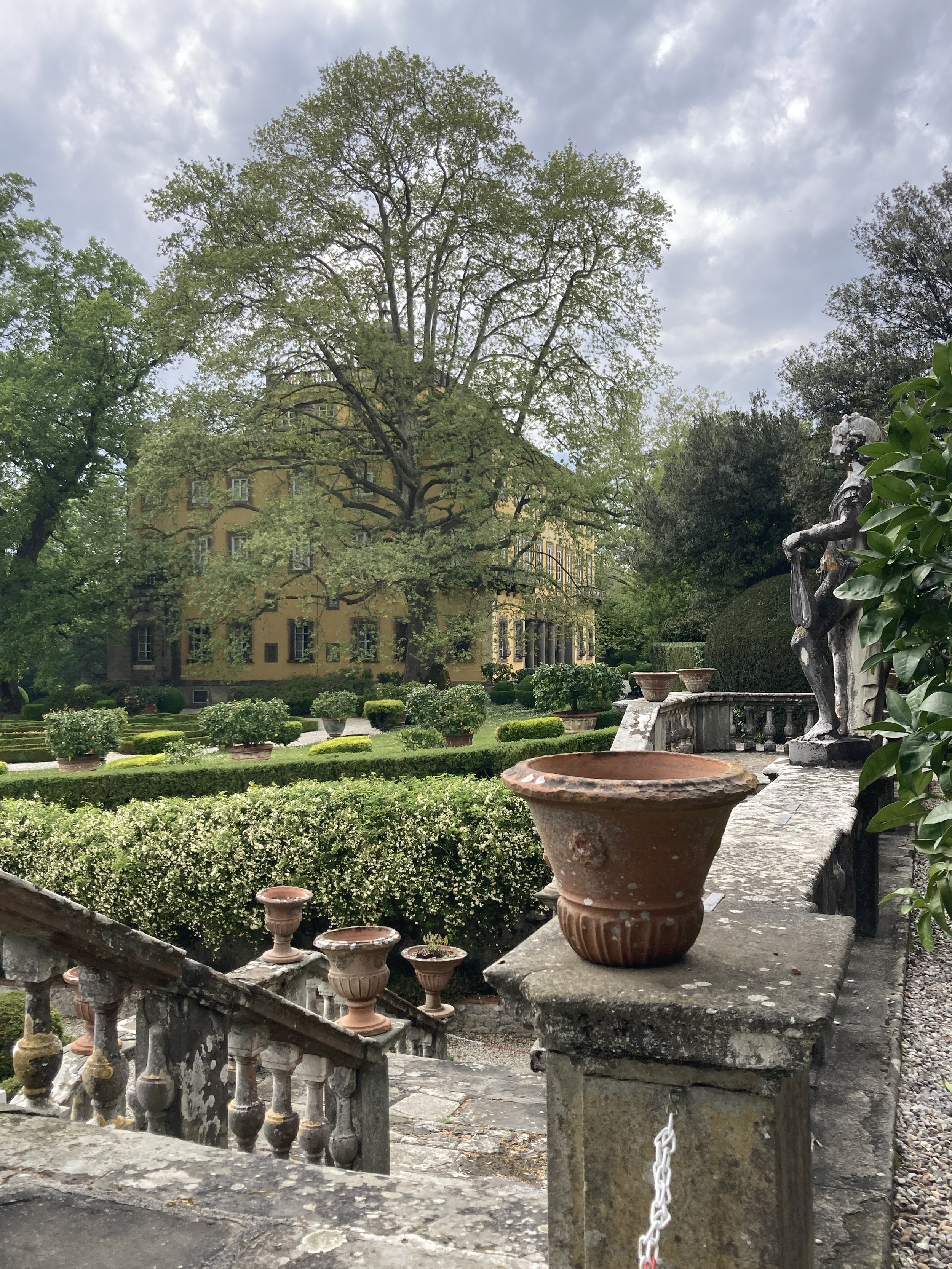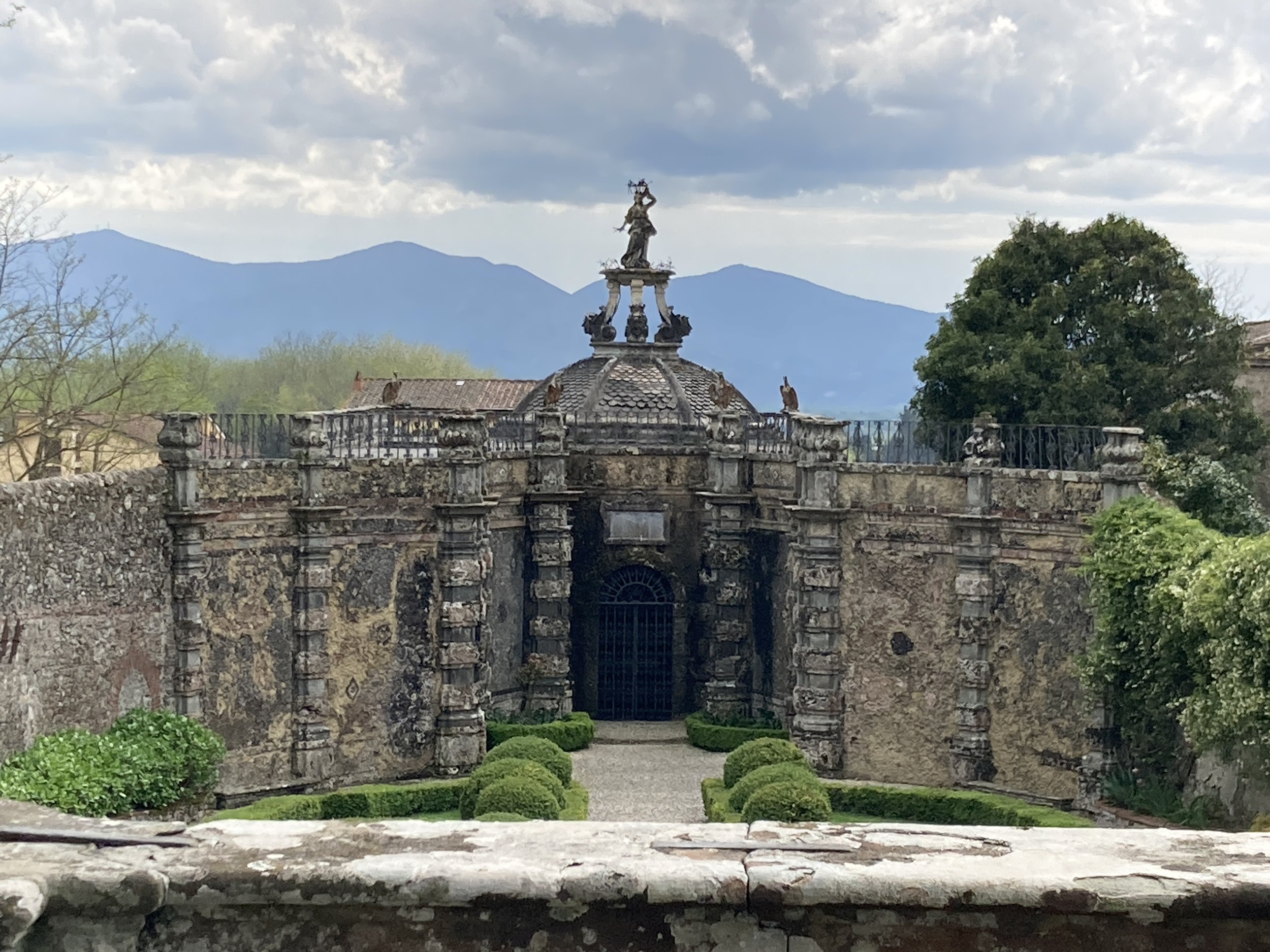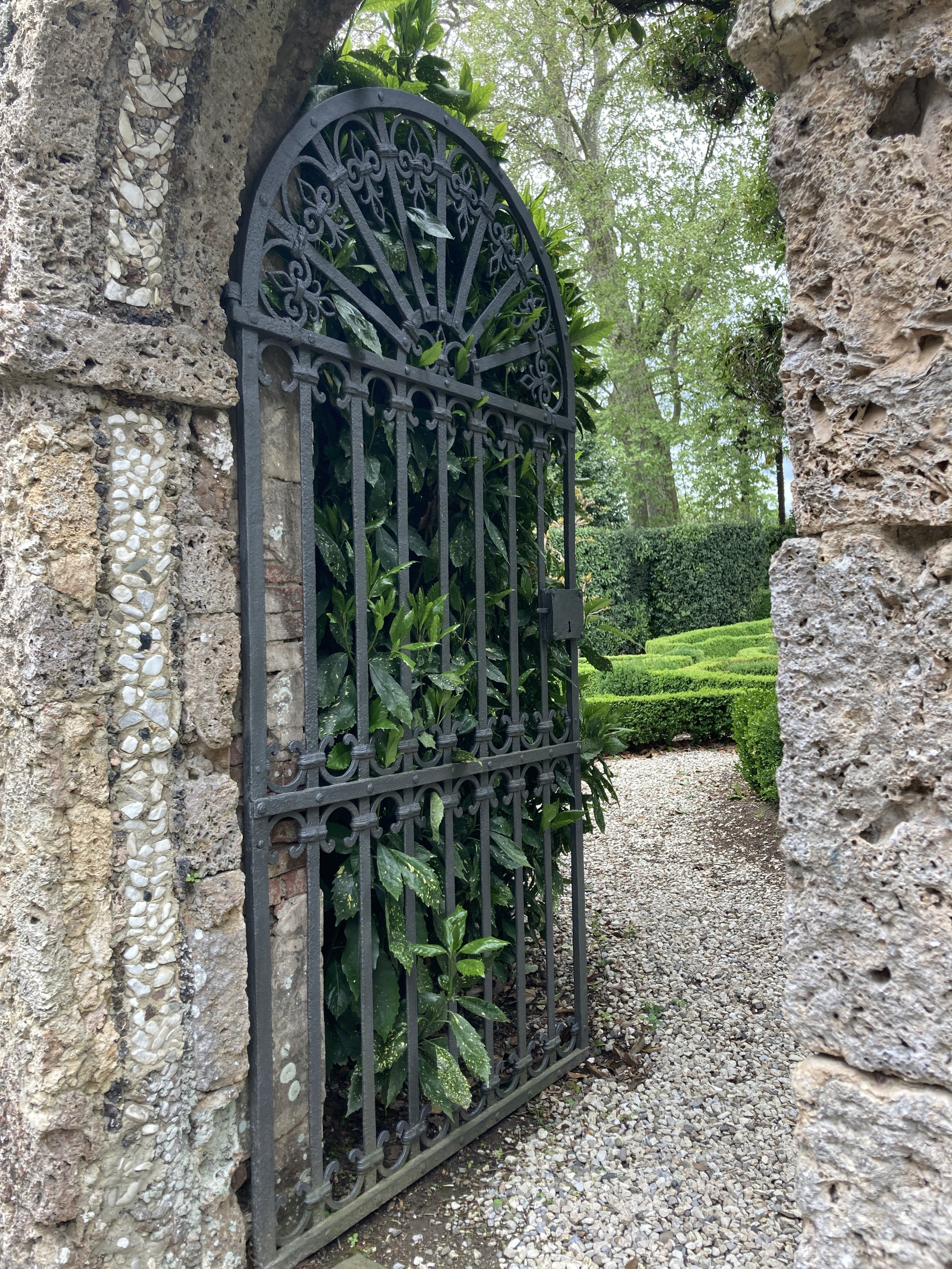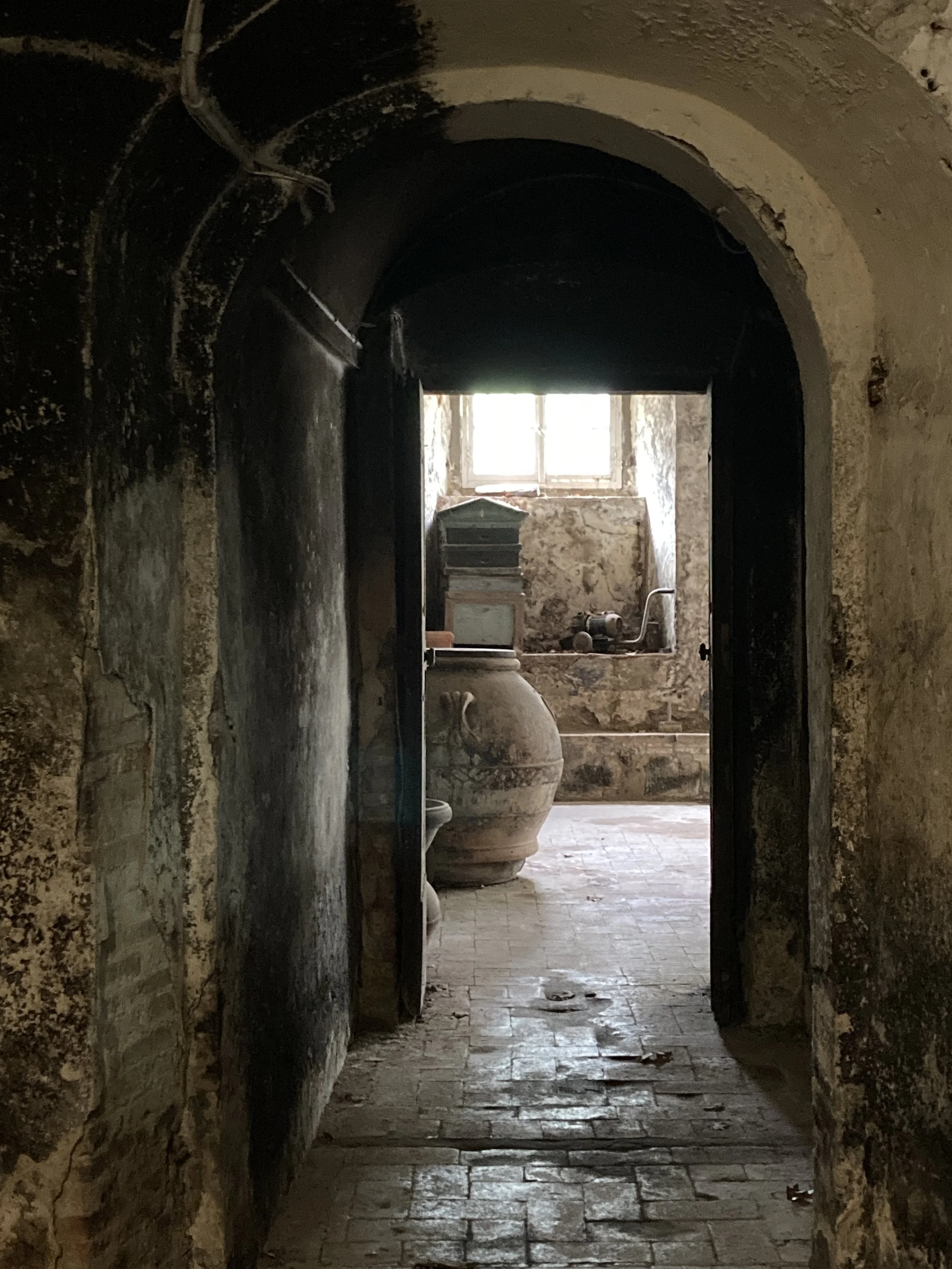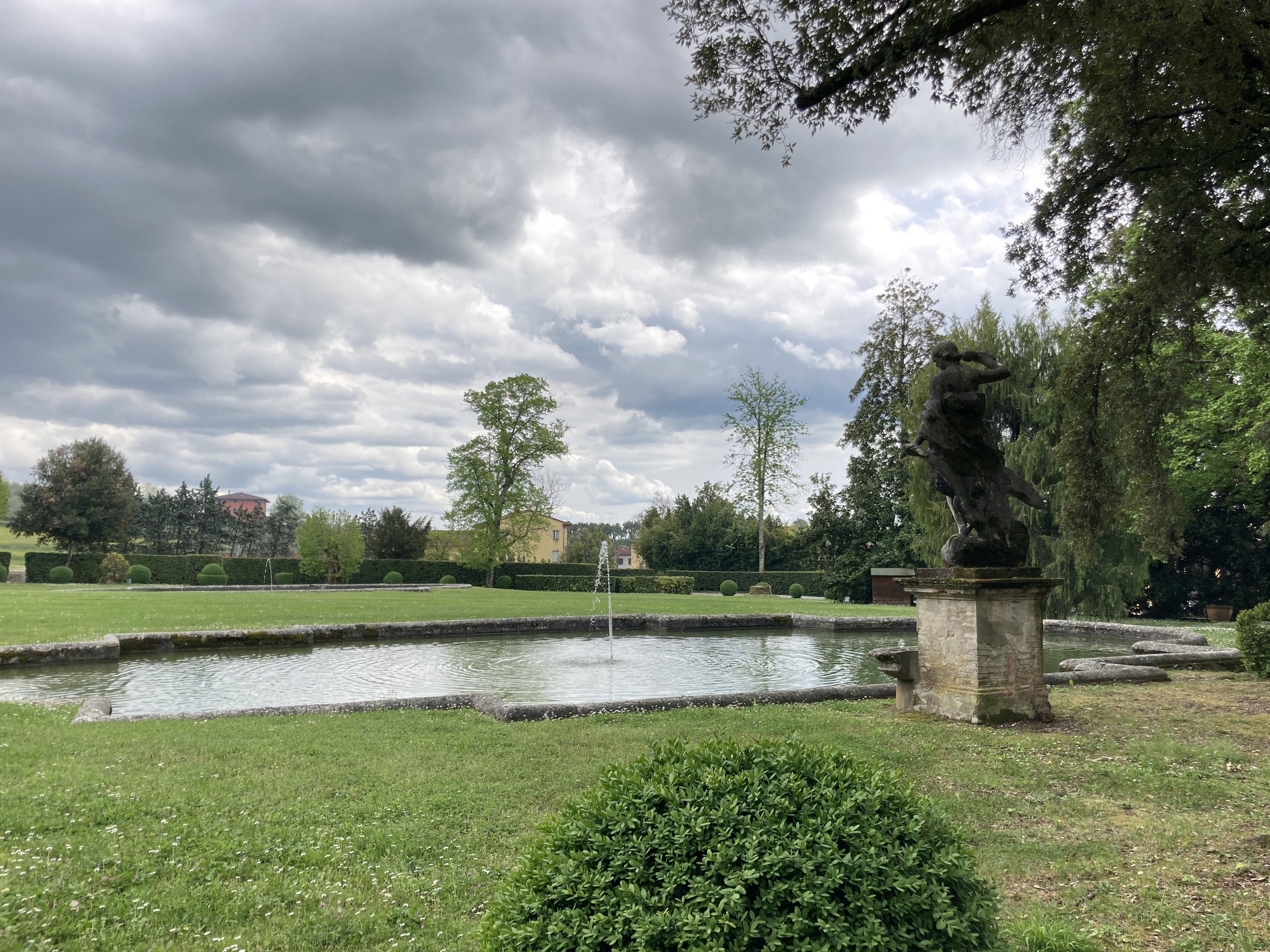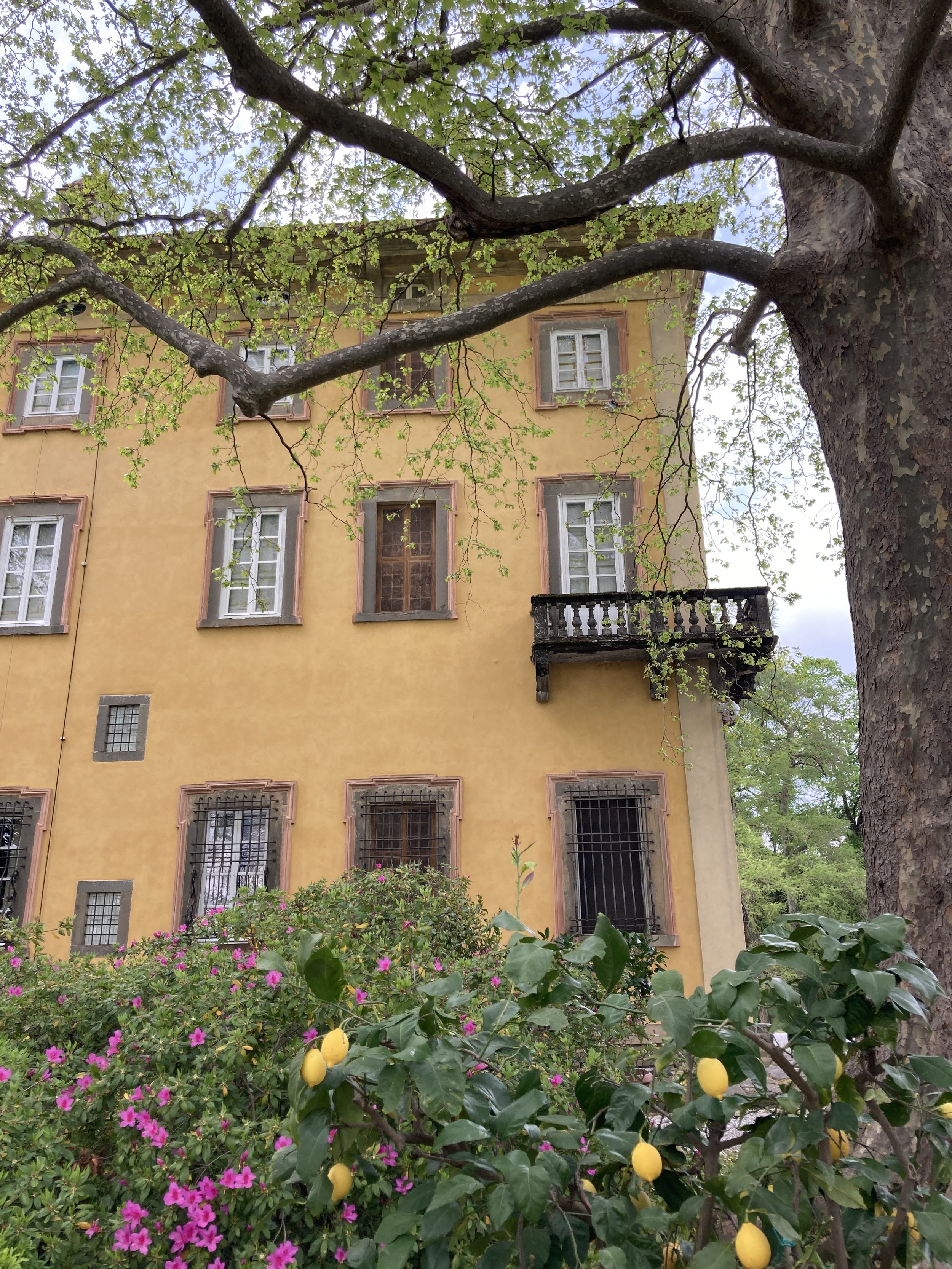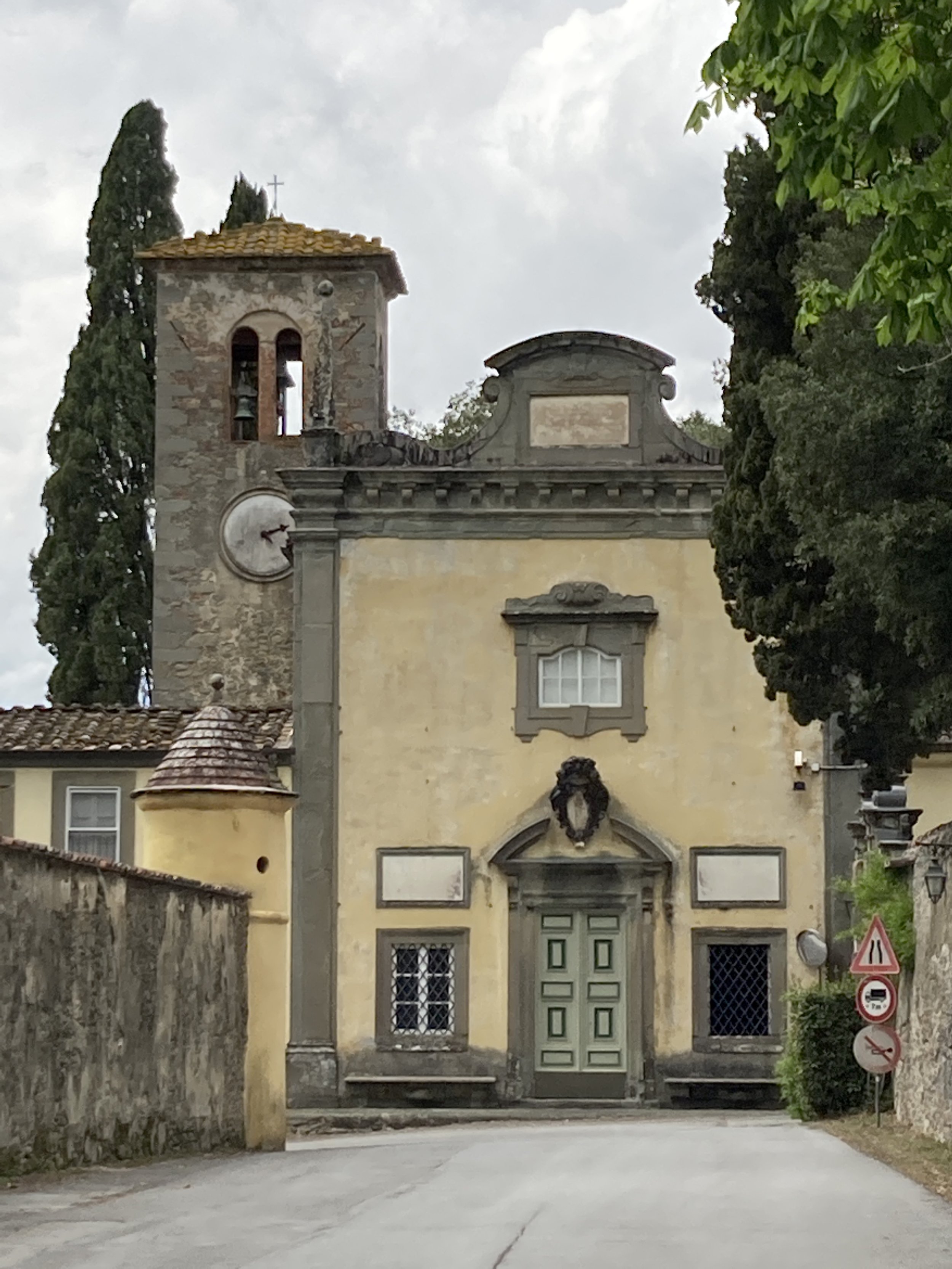La Foce - A Tuscan Garden With A Fascinating History
A 15th century pilgrim, walking along the Via Francigena on the way to Rome, might well have spent a night at hostel in the Val d’Orcia, just outside the current town of Chianciano Terme. No doubt the accommodations, run by the Siena Hospital and Monastery of Santa Maria della Scala, would have been basic and the surrounding landscape the not-so-green clay hills found then in that part of Tuscany. If that same pilgrim were to return today, he would not recognize the hostel, or the surrounding countryside, thanks in large part to the efforts of the Origo family. While the intervening centuries saw the area impoverished and the hostel abandoned, in the 1920’s Antonio and Iris Origo bought the property, known as La Foce, and began its transformation. Today it is a remarkable spot - one of the finest estates and gardens in Tuscany.
The entry courtyard at La Foce, the meeting point for tours of the garden.
Italian Antonio and wife Iris, a young American – Irish heiress, must have seemed crazy to their families and friends. The estate they purchased was run down, with rough dwellings and barren fields. And yet, they had a vision. Between 1924 and 1939 they restored the main building, turning it into their family home. They also reclaimed the land, developing it into fertile fields. They built houses for tenant farmers, a school and a clinic for the workers and their families, and a dopolavoro (dopolavoro means “after work”, a place for the workers to socialize). This level of social commitment and support for workers was unique at the time. Eventually the estate grew to include farms, olive groves, and woodlands. And then Iris Origo built a garden.
When I say garden I do not mean a small vegetable patch or a handful of flower beds. To create her garden, Iris hired the English Architect Cecil Pinset to design an elegant space that blended Italian and English design and made the most of the views over the countryside. 100 years later the garden design is still perfect.
Stone walls and a bit of fall color at La Foce
The garden at La Foce blends formal green spaces defined by waist-high hedges, stone walls, flower beds, and a wooded hillside. It includes an inviting series of terraces linked by stone stairways, a long arbor topped with wisteria, and beds of fragrant lavender. Flowers spill from large stone urns and roses fill their very own garden bed.
A graceful double staircase leads down to the lower garden with its angular hedge-rimmed beds, reflecting pool, and elaborate stone statuary bench. Cypress trees and classic Italian umbrella pines are visible at the garden edges and atop the hillside.
And the views! Off in the distance is the famous winding road, lined with cypress trees, that appears in so many photos. The garden is designed to present an unmatched view of this iconic Tuscan scene.
Our tour guide presented the history of both the land and the Origo family.
The Origos lived at La Foce during the years of World War II. That history is fascinating and well explained by the tour guides.
Iris Origo was a biographer and historian. Her WWII diary, War in Val d’Orcia, tells of life at La Foce and the precarious road she walked as a British – American living in Italy during that time. Despite a need to remain in the good graces of the Italian and German forces, La Foce provided shelter to orphaned children and children sent from the heavily bombed city of Torino during the war years. It also, at considerable personal risk, sheltered downed Allied pilots and POW escapees. It was a dangerous time, and the diary is fascinating reading in preparation for a visit to La Foce.
After the war, Iris and Antonio remained at La Foce for the rest of their lives, raising two daughters on the estate. The daughters, Benedetta and Donata, now in their 80’s, still reside on the property. Antonio and Iris, along with their son Gianni who died in childhood, are buried on the estate. Sustaining such a large property is no easy task and after Iris’s death in 1988 a good deal of the surrounding land was sold. The Origo daughters continued to own the heart of the estate and over time converted the main home and many surrounding buildings into event spaces and luxury accommodations for guests.
One of the guest houses on La Foce Estate
The Dopolavoro is now a restaurant serving produce and olive oil from La Foce. Each summer the estate hosts a music festival in honor of Iris, a project begun by her grandson. Every season brings a new reason to visit.
La Foce is a must see for garden lovers and history buffs visiting the Val d’Orcia. The gardens can be visited on guided tours Wednesday afternoons and Sundays from March 26 – November 1. Note that there are some closures for special events and tours must be reserved in advance. The home and outbuildings are not open on the tours – a good reason to book a vacation stay. That’s on my wish list as is a lunch at Dopolavoro (reservations are a must) and a return visit in summertime to see those wisteria in bloom.
website: www.lafoce.com
The website has fabulous photos and a portal to make reservations for garden tours. It is also great for getting a peek at the vacation lodgings and event spaces. For more information on Iris Origo and La Foce, I recommend War in Val d’Orica and Images and Shadows, an autobiography (the current edition has an afterword by her granddaughter Katia Lysy).
